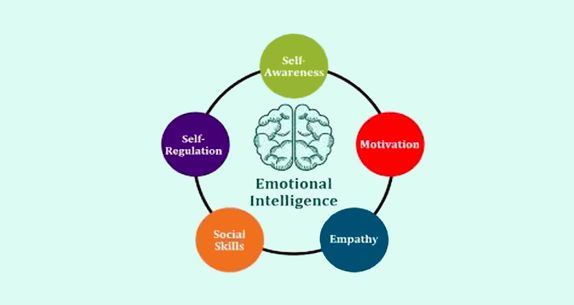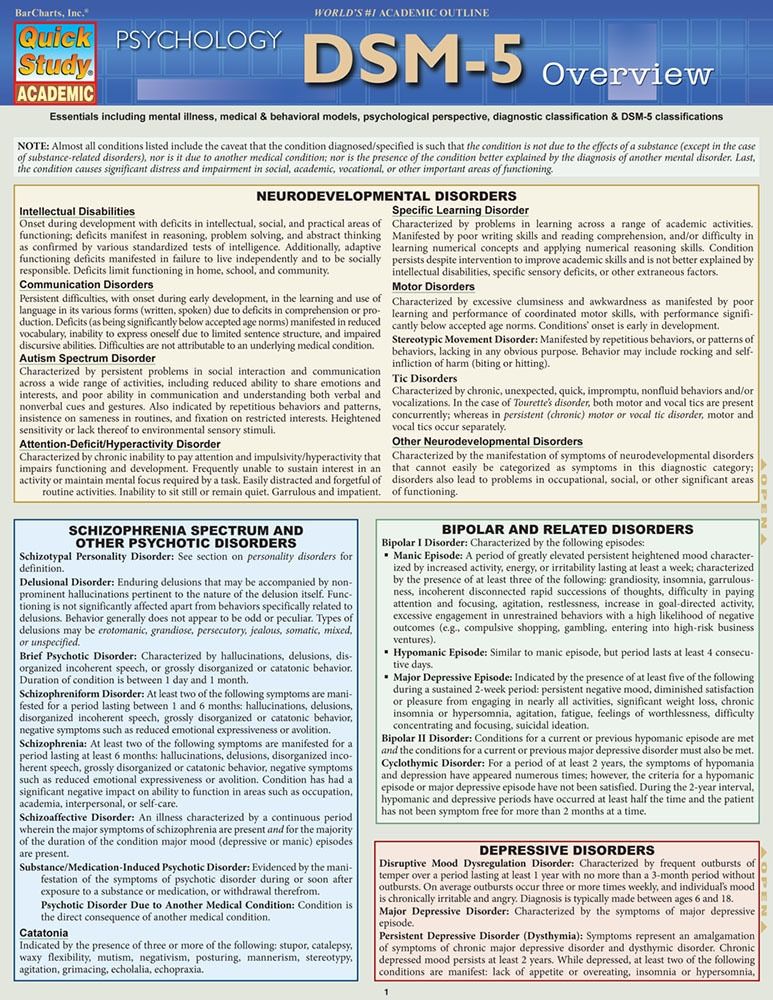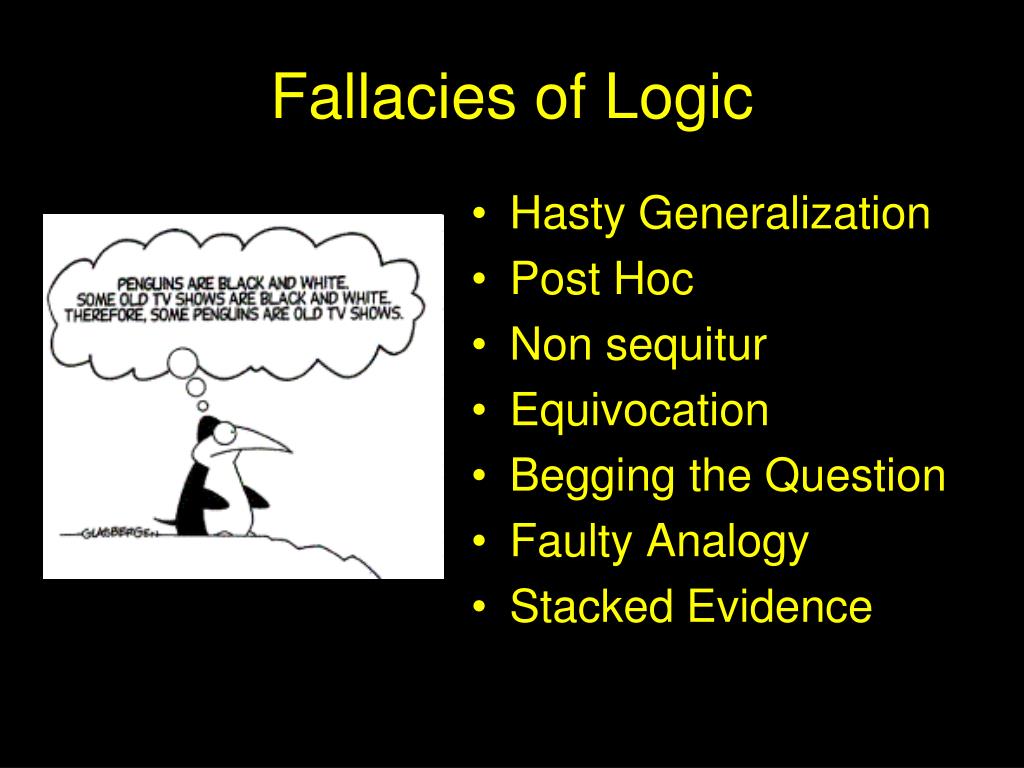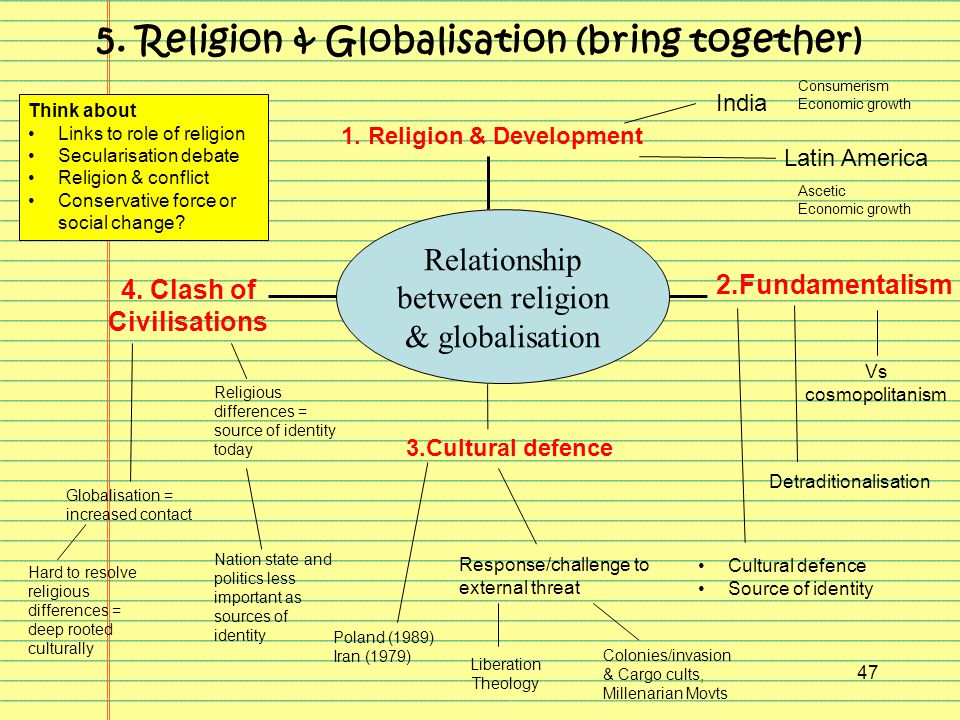Aspects of emotional intelligence
The 5 Aspects of Emotional Intelligence and Why They Matter
You might not have heard a lot about emotional intelligence, but you use it every day. How much you have has a huge affect on your success in several areas of your life, including your career. In fact, 90% of the people who perform the best at their jobs have high emotional intelligence, and 58% of a person’s ability to lead can be explained by their emotional intelligence. Since higher emotional intelligence correlates with improved job performance, it also correlates with higher annual income.
Emotional Intelligence is also useful outside the world of work. It’s hugely important for managing relationships with friends and family. Most conflicts between people can be prevented or handled in a healthy way by using emotional intelligence to understand ourselves and each other.
What is emotional intelligence?
It’s the ability to perceive and manage the emotions of yourself and others. Of course, perceiving and managing emotions are two completely different things, and so are your emotions versus another’s. That’s why emotional intelligence is split up into five different categories: internal motivation, self-regulation, self-awareness, empathy, and social awareness.
1. Internal Motivation
Internal motivation is the ability to make yourself work with little to no pressure from others. Some sources of internal motivation include curiosity, a desire to fulfill your potential, and/or a desire to see your vision come to life. If you’re highly internally motivated, you might want rewards like money or praise, but they aren’t the driving force behind your behavior. This means you have more control over your productivity, because your motivation is self-generated.
2. Self Regulation
Self regulation is the ability to remain calm in emotionally trying situations. While many factors influence how you feel and may be beyond your control, if you’re highly self regulated, you’re good at controlling your reactions.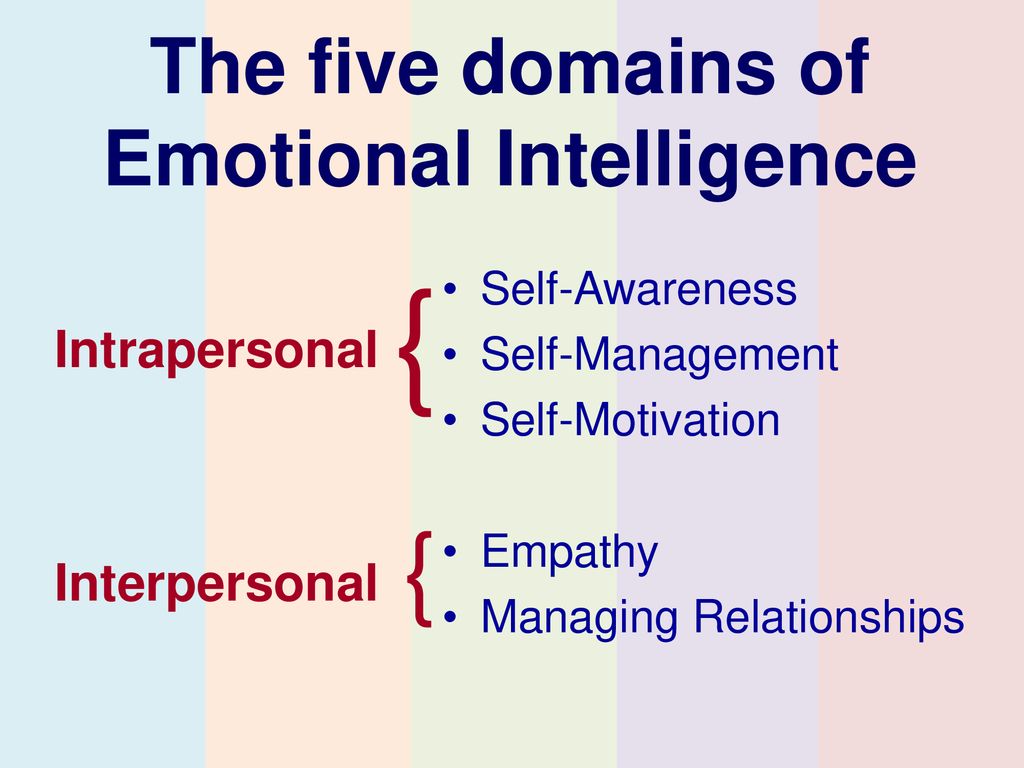 You can make clear-headed decisions even if the world is falling apart around you. Also, if you’re highly self-regulated, you can easily adapt, because the discomfort that often comes from change won’t make you stumble. Self-regulation is a necessary skill for people planning to go into jobs that are fast-paced and dangerous. For example, you would want to be self-regulated as a firefighter. If you panicked you could hyperventilate and pass out, endangering yourself and those you were trying to save.
You can make clear-headed decisions even if the world is falling apart around you. Also, if you’re highly self-regulated, you can easily adapt, because the discomfort that often comes from change won’t make you stumble. Self-regulation is a necessary skill for people planning to go into jobs that are fast-paced and dangerous. For example, you would want to be self-regulated as a firefighter. If you panicked you could hyperventilate and pass out, endangering yourself and those you were trying to save.
3. Self Awareness
Self awareness is the ability to evaluate yourself socially and understand how your behavior is being perceived by others. If you’re self-aware, you know how you’re feeling, how you’re acting, and how you appear. You likely have a strong grasp on your own strengths and weaknesses, which means that you know where and how you’ll be most useful. This knowledge can make you a great leader because you have an understanding of what skills you may be missing and therefore where and how you need others to apply their skills.
Self-awareness can also help you train yourself to think about your emotions in a productive way. It requires self-reflection and interpretation, so if you’re self-aware, when you get upset you might start to think about why you feel as you do and find that the feeling is momentary, misplaced, or a catalyst for positive action. Doing this allows you to think of your emotions as part of a larger picture, so you don’t become consumed by them. Knowing the reasoning behind your emotions can also give you a greater sense of control over them, improving self-efficacy.
4. Empathy
Empathy is the ability to understand how others feel and put yourself “in someone else’s shoes.” While no one can completely know for sure if they’re feeling what someone else is, If you’re highly empathetic, you’re good at intuiting what their feelings might be. If you’re highly empathetic, you’re also likely to feel pain when you see others in pain and pleasure when you perceive others’ pleasure, allowing you to connect with others emotionally.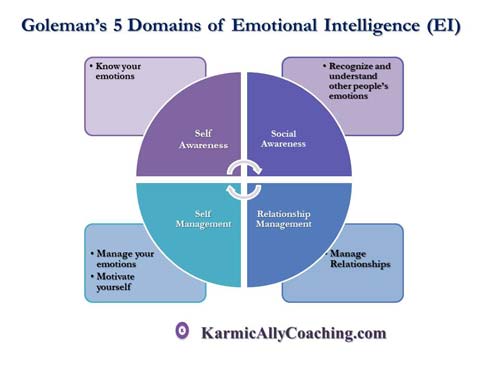
5. Social Awareness
Social awareness is the ability to pick up on social cues and communicate well with others. It requires being quick on one’s feet in conversations. Socially aware people are often very good listeners, who can easily figure out what’s important to the people they speak with. If you’re socially aware, you’re also good at perceiving power structures and group dynamics and appealing to the proper people. As such, social awareness is a powerful tool that can lead you to fit in, thrive, and potentially become a powerful leader.
Emotional Intelligence Matters
Emotional intelligence matters because you need to work successfully with others to truly create value in the modern economy. When a team has high emotional intelligence, the workplace is welcoming, creating happier, more productive employees.
While all jobs require emotional intelligence to some extent, some careers depend on it above all else. Jobs in sales, for example, require superb emotional intelligence.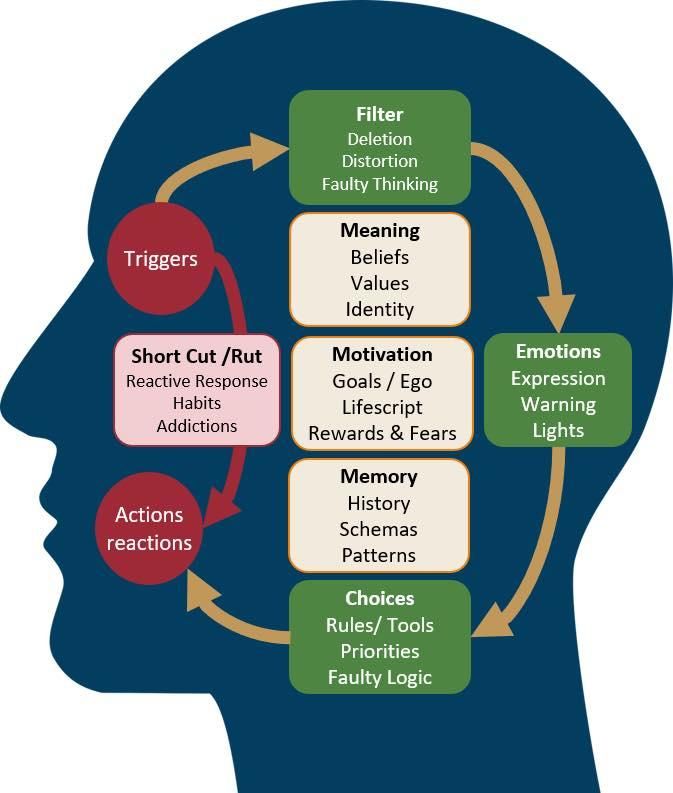 In sales, once you become an expert on your product and the context surrounding it, you need to be able to build a relationship with a prospect, determine what they are looking for and provide it. All of these activities are based on a person’s social awareness and empathy.
In sales, once you become an expert on your product and the context surrounding it, you need to be able to build a relationship with a prospect, determine what they are looking for and provide it. All of these activities are based on a person’s social awareness and empathy.
At Awato we believe people should be aware of emotional intelligence and know what emotional intelligences they possess. Our assessment platform includes an emotional intelligence assessment to help you reflect and learn which intelligences you possess.
Knowing your emotional intelligence and how it corresponds with careers is useful for navigating the world of work. Just as you would want to know what hard skills are required to fulfill a role, you want to know the soft (subjective, universal) skills too, which emotional intelligence is a major part of. You can either use this knowledge to choose careers where you know your current emotional intelligence would be a good fit or to determine where you might like to improve your emotional intelligence.
If you decide you need to improve your emotional intelligence, there are several tactics you can use. They all boil down to two essentials: paying attention and brainstorming. If you pay attention, your habits will become apparent to you, and if you brainstorm you can come up with alternatives to your default thoughts and actions. Once you feel like you’ve gotten the hang of it, take our assessment again to see how you’ve improved. You’ll find new and exciting career horizons open up for you.
Emotional intelligence: Components, importance, and examples
Emotional intelligence (EI) refers to a person’s ability to understand and manage their emotions as well as recognize the feelings of others. Research shows it is a useful tool for navigating work life, relationships, education, and mental and physical well-being.
Behavioral experts commonly refer to the five components of EI, which involve behaviors such as a person’s self-awareness and empathy for other people.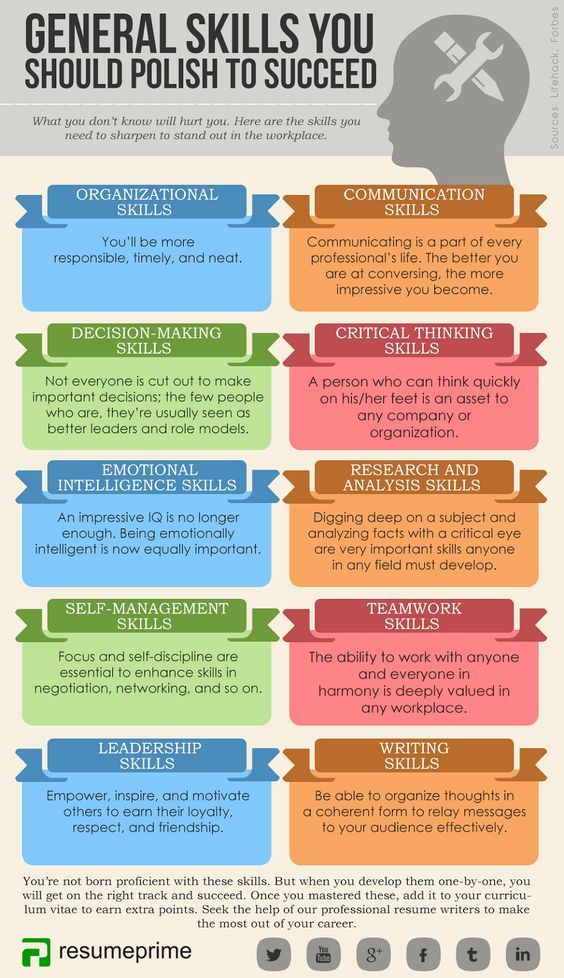
This article explores EI, its components, why it is important, and examples.
EI refers to a person’s ability to recognize, understand, and manage their emotions as well as their ability to understand others’ emotions.
Many people think of intelligence in terms of cognitive abilities, such as those that make up their IQ. These include the ability to:
- use logic to solve problems
- pick up new skills easily
- use a large vocabulary
- memorize and retain information
Since the 1990s, though, psychologists have increasingly noted the importance of EI. Research from 2015 suggests it may be more important than IQ for predicting a person’s efficiency at work.
While some aspects of EI may be genetic and closely related to personality type, research from 2018 also shows that a person can learn and improve upon their levels of EI with training and by making small changes to their daily routines.
Psychologist Daniel Goleman created one of the most popular models of EI.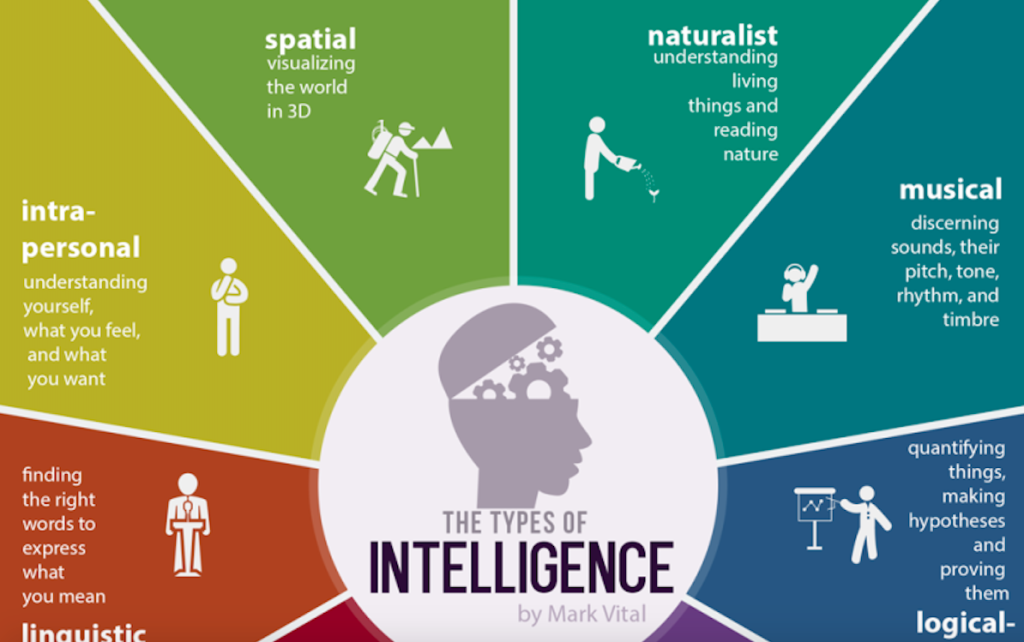 It breaks down EI into five key components, according to a 2018 research review.
It breaks down EI into five key components, according to a 2018 research review.
1. Self-awareness
A key part of EI is a level of understanding and self-awareness of a person’s own emotions.
An individual with high EI is not only aware of what emotions they are feeling but can put words to their feelings. They can also understand the consequences of their emotions and how they may change and shift over time.
2. Self-regulationOnce a person has achieved the first component, they can move on to self-regulation. An individual with a good awareness of their own emotions can better manage the emotions and behaviors that come along with them.
This may involve noticing a difficult emotion and slowing down or resisting any impulsive action that may follow.
Learn more about emotional self-regulation here.
3. Motivation
Motivation is the process that stimulates and directs someone toward achieving their goals.
It is a key part of EI, 2016 research suggests.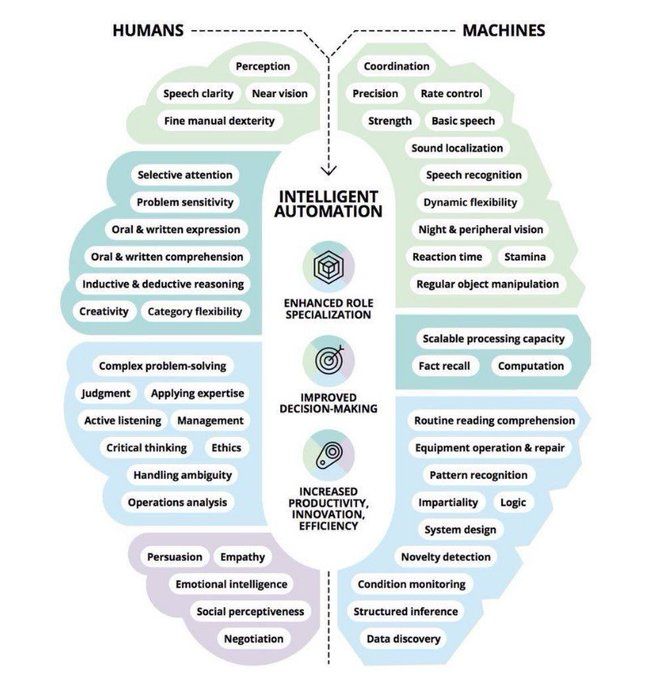 Motivation allows a person to remain true to their goals and persevere, even during challenging times.
Motivation allows a person to remain true to their goals and persevere, even during challenging times.
A person with low motivation may be discouraged easily by any obstacle and give up. A person with high motivation realizes that the reward of their personal goals is worth the time and effort spent getting there, even when they face obstacles.
Learn more about techniques to say motivated here.
4. Empathy
Empathy refers to how tuned to the emotions of others a person is. Someone with high EI can accurately identify which emotions another person is feeling and can tell the difference between genuine and false emotions.
A person may do this by noticing certain facial expressions or changes in another person’s voice or body language.
Learn more about empathy here.
5. Social skills
A person with higher levels of EI may be better at interacting appropriately with others than a person with low levels of EI.
EI can help a person build relationships, communicate with others, and maintain friendships.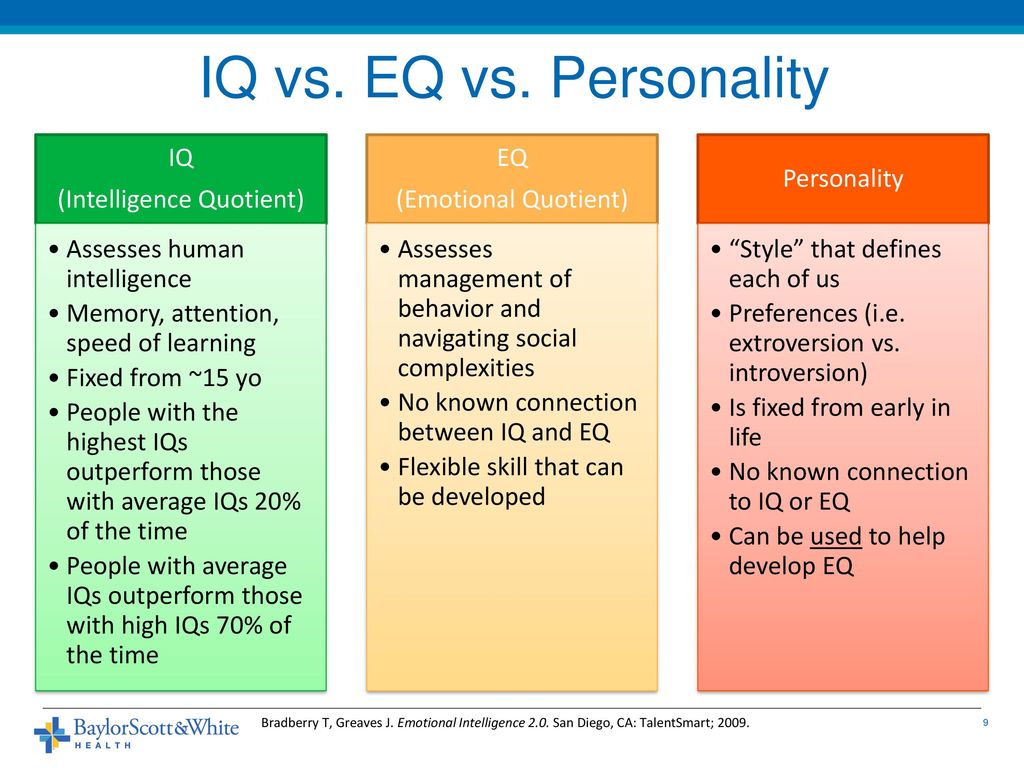
EI can help a person work with and supervise other people. It can also help them to cope with and be more resilient to stresses that they might face in life.
Research has shown that EI can be important in many aspects of a person’s life. A 2019 study, for example, states that increased EI can improve a person’s:
- work-related outcomes, including their teamwork and management skills and their overall job satisfaction
- psychological health and well-being
- physical health, including somatic complaints and HbA1c levels
- social relationships
Another 2019 study found that EI training led to improvements in:
- stress management
- general mood
- self-expression
- emotional understanding
- emotion management
Research from 2019 has shown that students with higher levels of EI are generally more happy, sociable, and self-confident, as well as better at handling stress.
According to a 2020 research review, studies have also shown that EI can help students develop social relationships in school, which can positively impact their academic performance.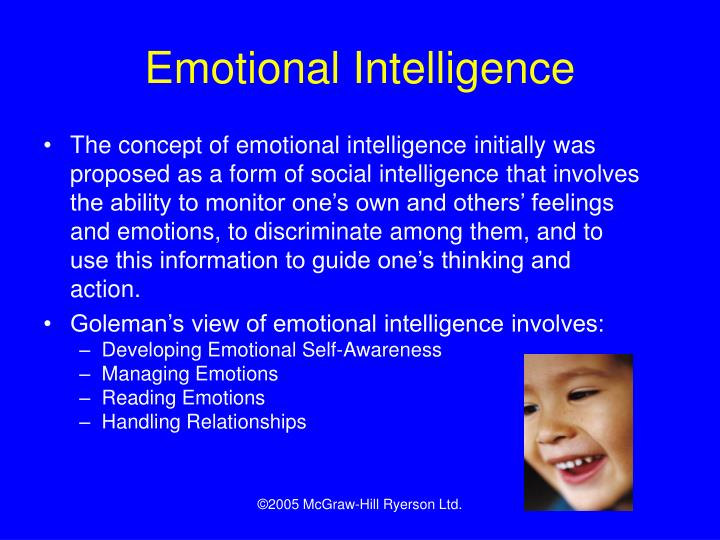
Research has suggested that people with lower levels of EI are less able to regulate their emotions and more likely to engage in mood regulation strategies that negatively affect their overall health.
A 2018 study, for example, shows that people with low levels of EI may be more likely to use smoking and alcohol as coping strategies and may be more at risk of self-harming behaviors and eating disorders.
Learn more about how to show emotional support to someone here.
Below is an example of how a person may display low or high EI when faced with a difficult situation.
A manager finds out that a time-sensitive email has not been sent to one of their largest clients. The manager may feel anger toward their team or fear losing their job.
A person with low EI may lash out in anger at their team or attempt to deny the problem. As a result, the team may become discouraged and avoid taking responsibility.
A person with high EI would be aware of their own feelings but realize that acting upon them may not bring them closer to achieving their goals.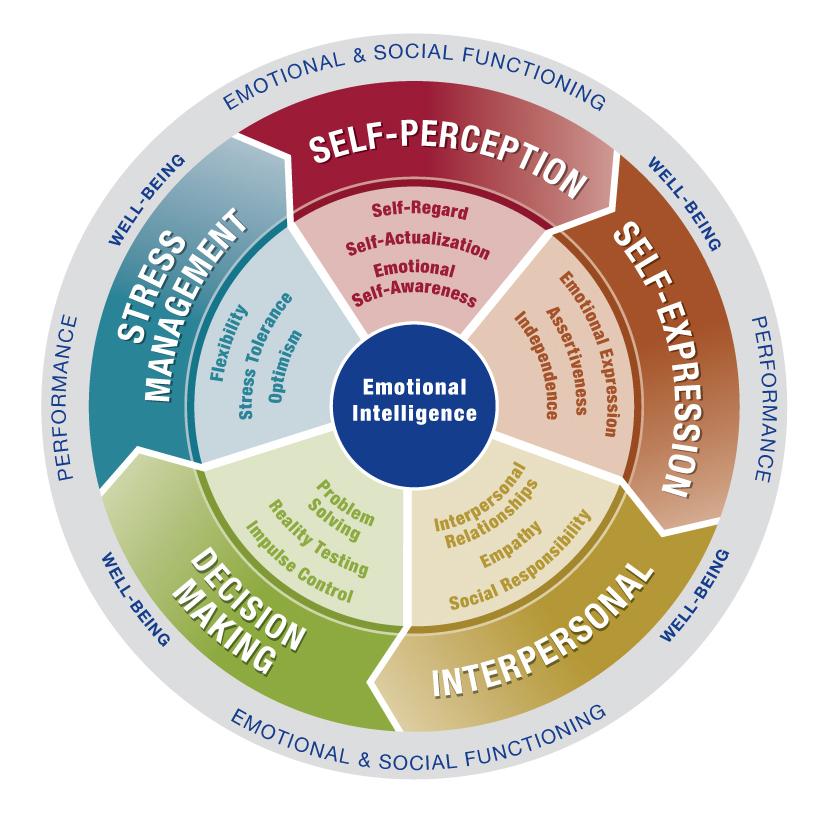 Instead, they may encourage a calm, supportive atmosphere to motivate the team and find resolutions to the problem.
Instead, they may encourage a calm, supportive atmosphere to motivate the team and find resolutions to the problem.
With empathy and strong social skills, the manager with high EI would also know the correct time to ask questions and take disciplinary action toward those responsible for the mistake, making sure that these conversations do not disrupt the team.
Learn more about low EI and how to deal with it here.
People can improve their EI in several ways.
A 2018 study, for example, found that participants were able to improve their EI over a period of 4 months by practicing transcendental meditation.
The American Academy of Family Physicians (AAFP) states that there are ten behaviors people can practice to help build their EI. These are:
- Clarifying a daily intention: A person can set an intention, such as building understanding, based on their schedule that day.
- Practicing self-care: If a person is well-rested and relaxed, for example, they are more likely to be able to control their emotions.
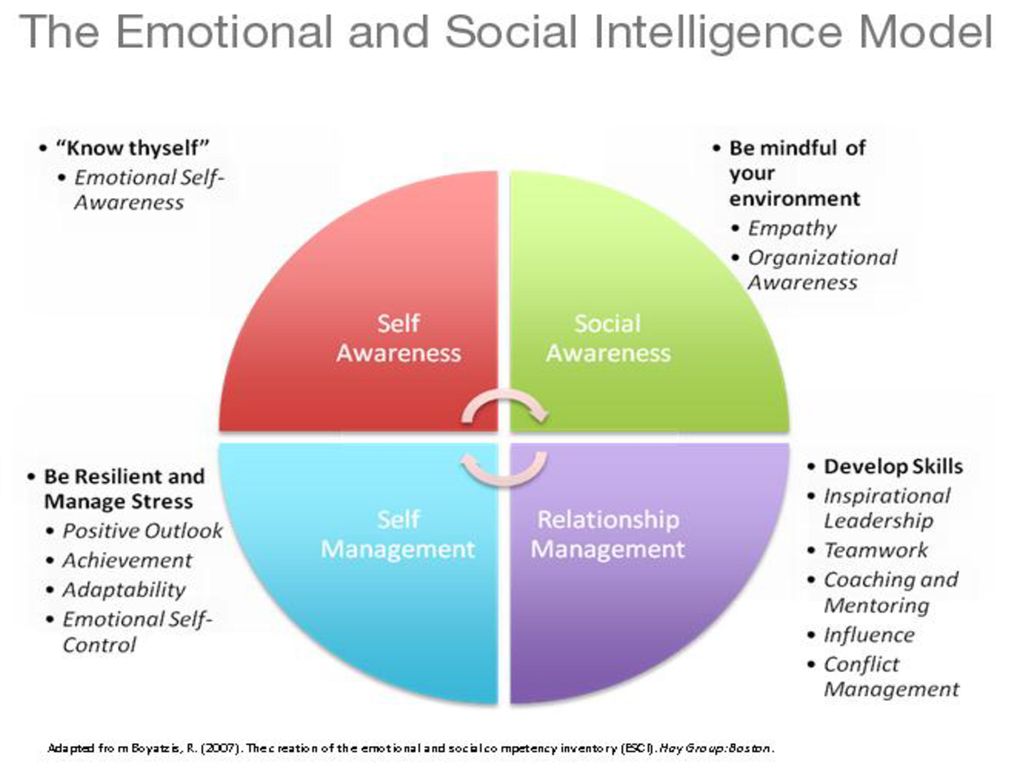
- Performing an emotional checkup: A person should regularly consider how they are feeling and how their body is reacting to emotions.
- Slowing down: A person should try pausing and taking a breath before reacting to or entering stressful situations.
- Asking questions: The AAFP notes that people who are curious about their own and others’ emotions are more able to build empathy. A person should ask questions to better understand how others are feeling.
- Creating space for emotions: If a person acknowledges their negative emotions, they will be more able to work on these. One way a person can practice this is by engaging with mindfulness.
- Being aware of others: A person should pay attention to their environment and to how others are feeling. A person can remove distractions like their phone by turning it off when engaging in group conversations.
- Making an effort to connect with others: By interacting thoughtfully with others, a person can become more aware of others’ emotions.
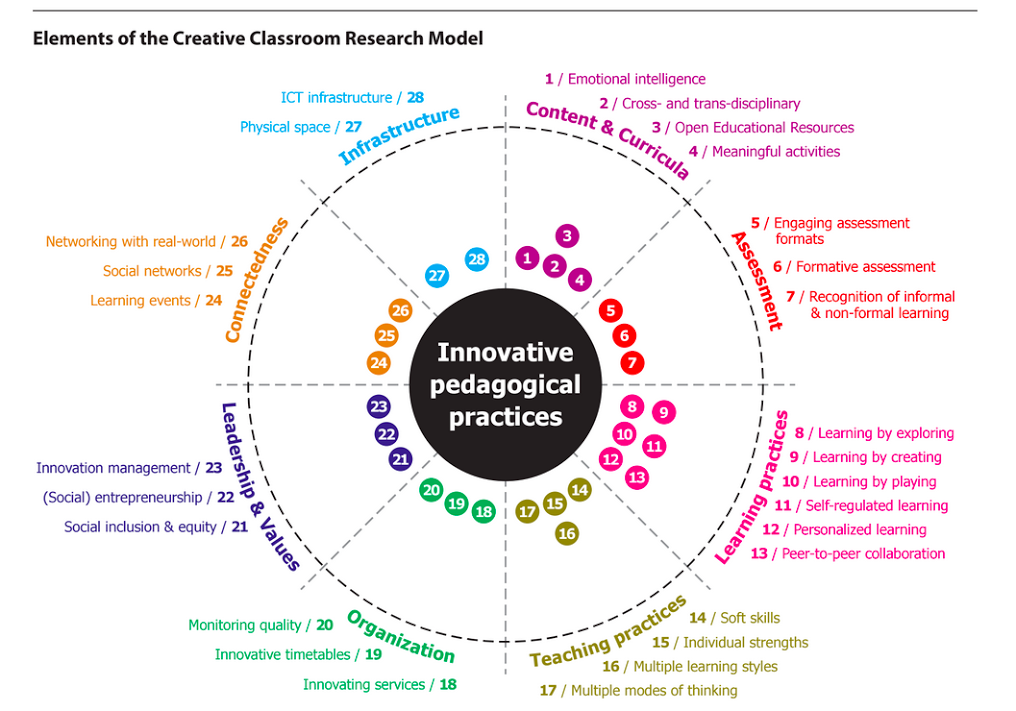
- Apologizing when needed: People with higher levels of EI are generally more willing to admit when they have made mistakes, apologize for these, and take accountability.
- Beginning and ending the day positively: A person can begin their day positively with a morning ritual, such as listening to their favorite song, and end their day by noting what they are thankful for.
Learn more about why self-compassion is important and how to practice it here.
EI can help a person recognize and navigate their own, as well as others’, emotions.
Higher levels of EI can positively influence a person’s emotional and physical health as well as make them more resilient to stress.
A person can improve their EI by practicing meditation and by making small changes to their routine.
12 elements of emotional intelligence. What do you need to work on? - SKB Kontur
The term was popularized in 1996, when the book "Emotional Intelligence" by American psychologist Daniel Goleman was published.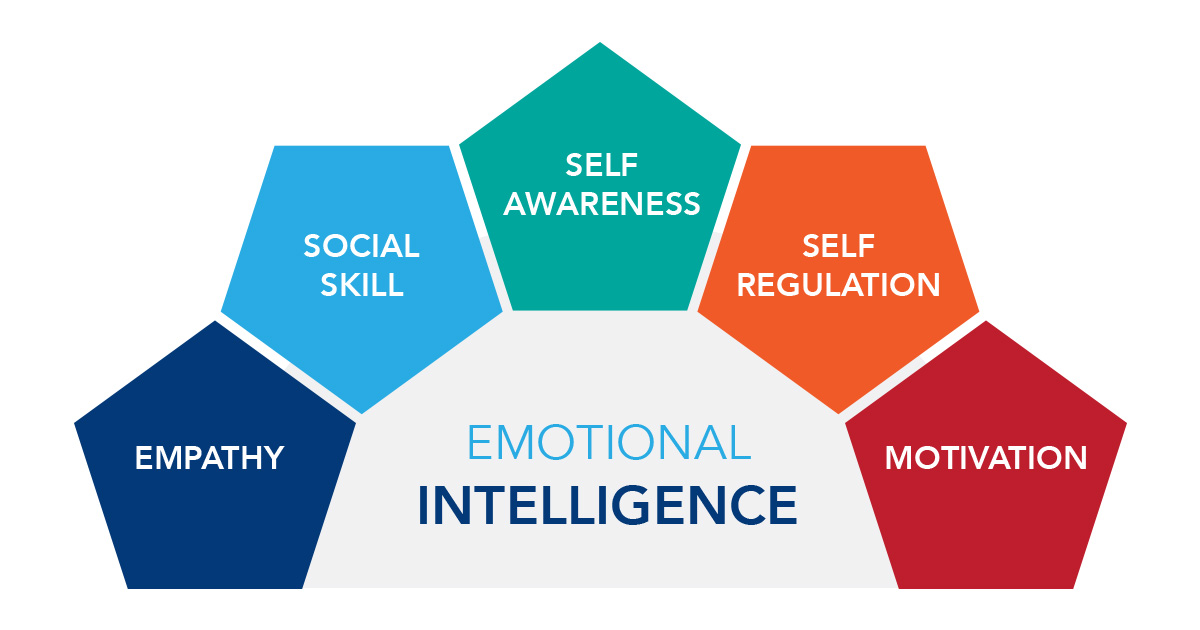 In particular, he suggested that EQ, or emotional intelligence quotient, may be even more important than IQ (intelligence quotient).
In particular, he suggested that EQ, or emotional intelligence quotient, may be even more important than IQ (intelligence quotient).
IQ and EQ: Common Features and Differences
Intelligence generally has many definitions, of which only a few are related to the ability to adapt, perceive and overcome problems, acquire and use knowledge. The life of a particular person depends on his existence in groups, and all his abilities are affected by the changes that he causes by his own behavior in the social environment. Thus, it turns out that IQ without EQ is worth little.
Since emotional intelligence is a relatively new term, it is much more difficult to evaluate it. But the same difficult situation is developing with IQ: there are many different methods for assessing general intelligence, but none of them can be called ideal.
Often a person's place in the social and business environment depends on his IQ, as well as personal achievements, which, as is commonly believed, are directly related to his level of intelligence.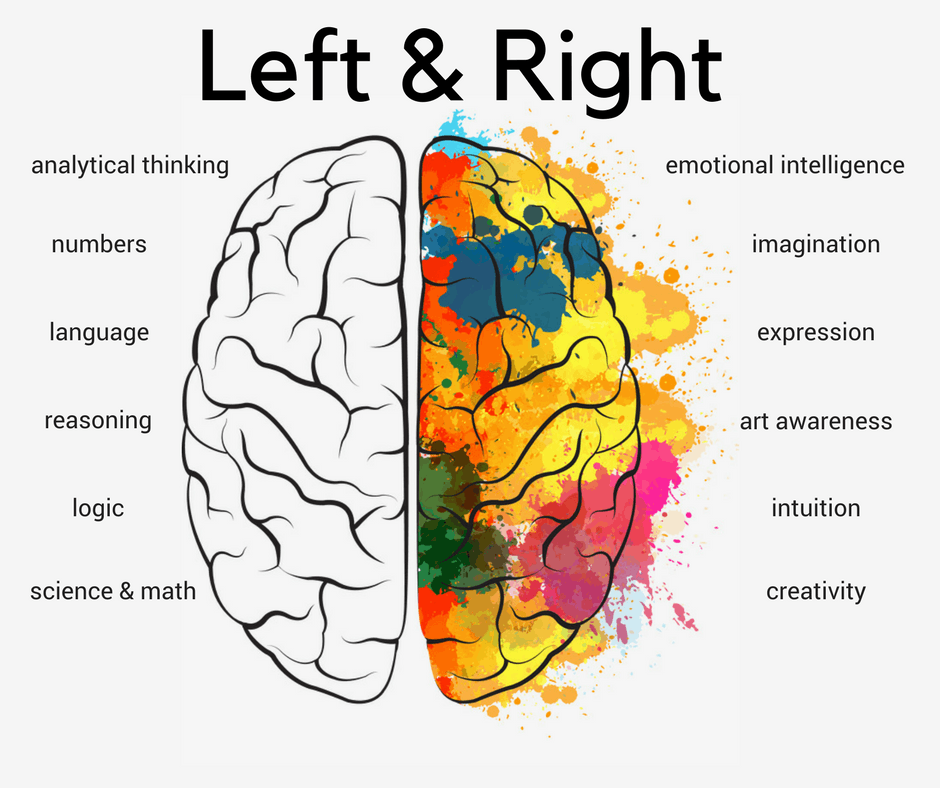
Emotionally intelligent people are considered good candidates for leadership positions. However, ability without the desire to work hard and hard is a waste of potential.
So far the formula for entrepreneurial success has been:
good potential + hard work
But even that doesn't work without a developed EQ.
Developing Emotional Intelligence
Below, you can use the list of emotional intelligence characteristics to check if you need to improve some of them or not.
A sense of self
Emotional intelligence is what allows you to balance your experience, behavior, and your actions and reactions with the behavior and expectations of other people.
Having a clear picture of yourself and an accurate understanding of what and how you feel helps you set clear goals. It also helps to deal with their strengths and weaknesses, which is important in any form of social interaction.
- If you are not aware of your shortcomings, how will you take them into account in communication?
- Have you ever thought about why your efforts in business are not bearing fruit? Perhaps because you underestimated yourself?
Self-awareness is, in essence, the perception of oneself and one's environment.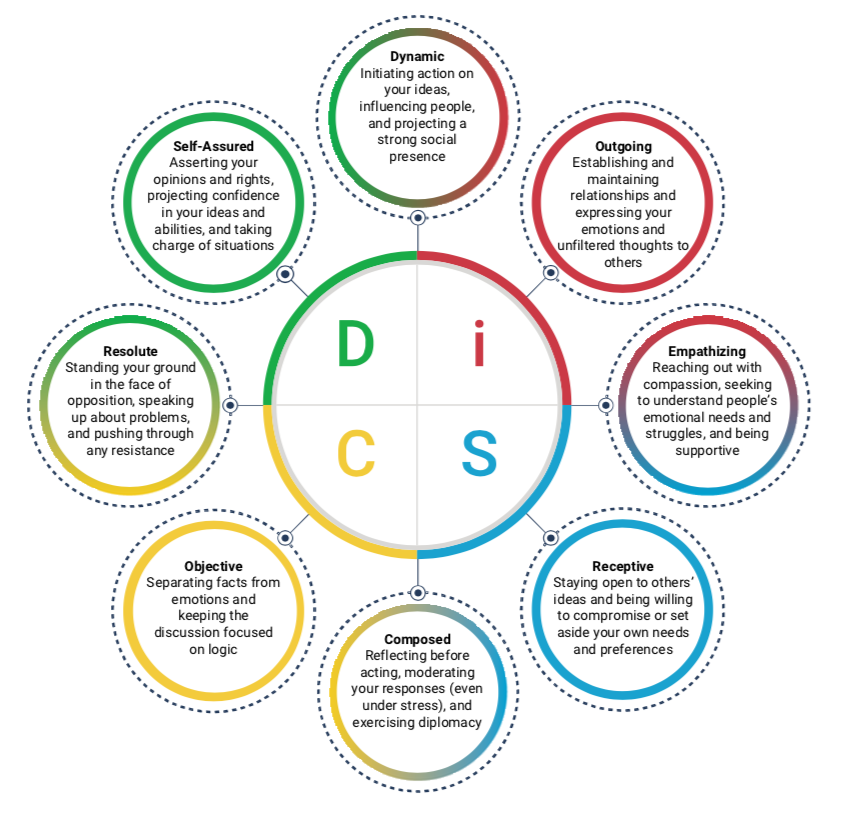 You are always under the influence of the social context, and this context affects you. Knowing the big picture is a prerequisite for a sense of self.
You are always under the influence of the social context, and this context affects you. Knowing the big picture is a prerequisite for a sense of self.
What to do
To better understand yourself, you need to use as many abilities as possible and have analytical thinking, namely, observe yourself as objectively as possible, explore your emotions and thoughts.
- For this it is useful to keep a journal of thoughts, feelings, experiences. Evaluate all actions by asking yourself questions.
- If you have a fight with someone, try looking at the situation from your opponent's point of view.
Self-discipline, self-management, self-regulation
Just understanding yourself and your actions is not enough - you need to use this competence. Self-regulation is important - the ability to stand your ground, even when it is difficult to control yourself. But this quality comes with age, as it is a characteristic of a mature person.
Over time, we develop not only our own internal state, but also someone else's.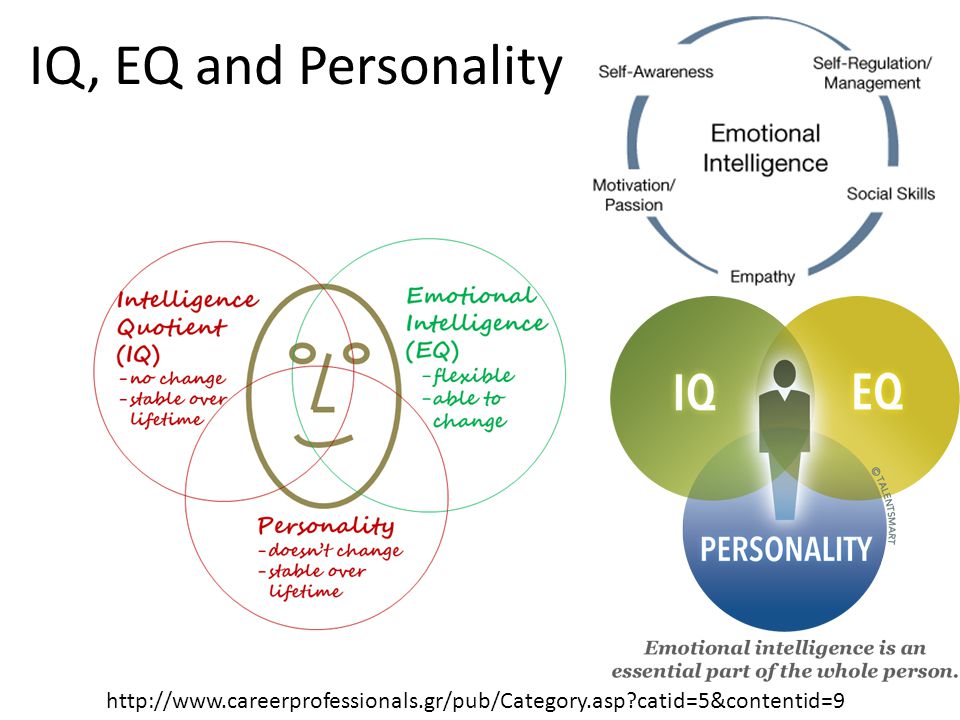 People with highly developed emotional intelligence begin to pay close attention to how their actions affect the inner lives of those around them.
People with highly developed emotional intelligence begin to pay close attention to how their actions affect the inner lives of those around them.
It is the inner life that sets the outer stimuli in motion, and therefore people with EQ pay attention to such subtleties as the way other people think.
What to do
- Have you ever been called a selfish, narcissistic, self-centered person? If yes, then you should pay attention to self-regulation.
People with emotional intelligence manage their own actions and emotions primarily for their own sake, and not in order to harm the feelings of others.
If you often explode or react impulsively to other people's words, then you should develop self-discipline skills. Learn to calm down: take a few deep breaths, count to ten before reacting to something.
Empathy
Empathy, or the ability to understand and share the feelings of others, is the reason for our evolutionary need to stick together and survive in groups.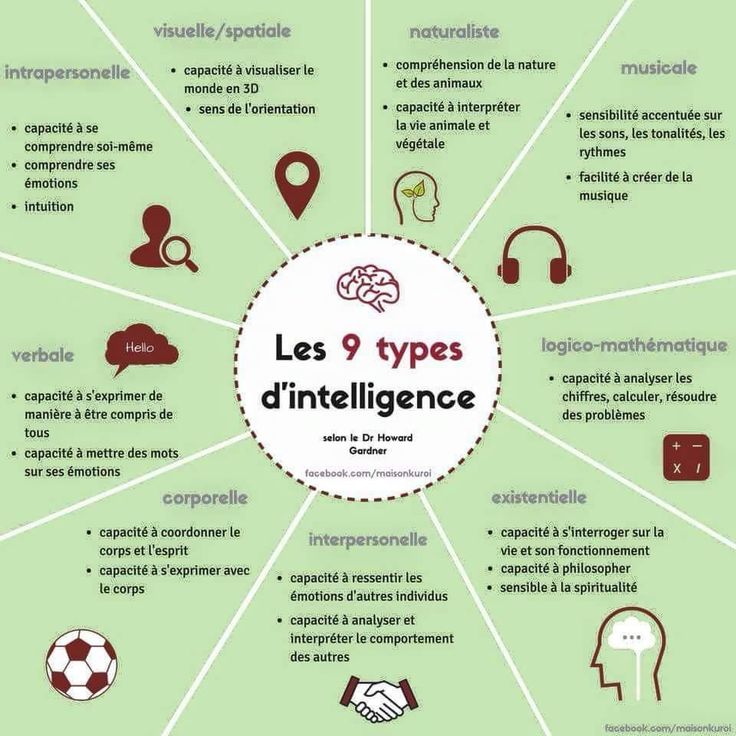
Empathic people adapt better in society. But this does not mean at all that they are conformists. They are just able to understand others and put themselves in their place.
The only problem is that being aware of other people's needs and feelings can put you at a disadvantage if you forget your own needs. That is why it is important that all elements of emotional intelligence are balanced and in harmony.
What to do
Empathy is not an innate sensitivity, but a skill that can be practiced, learned and perfected.
If you are accustomed to answering questions about your affairs in detail, but do not consider it necessary to be interested in the life of the interlocutor, then you should hone your listening skills.
- Offer help where it's needed, but don't do it on impulse. Being empathetic doesn't mean always being nice to everyone.
Why is it important to control empathy (who will you empathize with)? In order not to find yourself in a disadvantageous position and under the threat of manipulation by less sensitive people.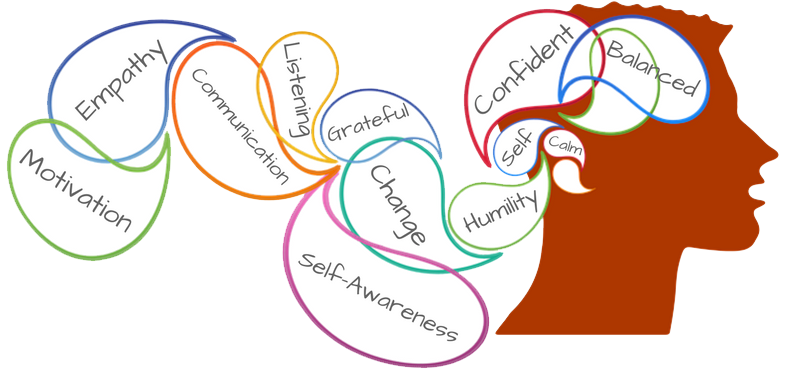
In this case, intelligence is expressed in the fact that you take the initiative at the right moment and are well oriented in your skills.
Positive attitude
This is optimism and the ability to focus on the positive aspects of situations in which you find yourself.
Even in unpleasant situations, highly emotionally intelligent people try to focus on what they can learn from negative experiences.
Persistence in achieving goals despite difficulties is the quality that distinguishes successful leaders with a positive outlook on life from the rest of the mass of people.
What to do
Some people act as if pessimism will prepare them for all the failures they may face.
But if you try to anticipate and account for every failure, and then have doubts about whether a business project will succeed, if you often give up before you even start, you should change your mindset to a positive one.
Even the specialists of the famous Mayo Clinic note that positive thinking helps to quickly restore mental and physical strength.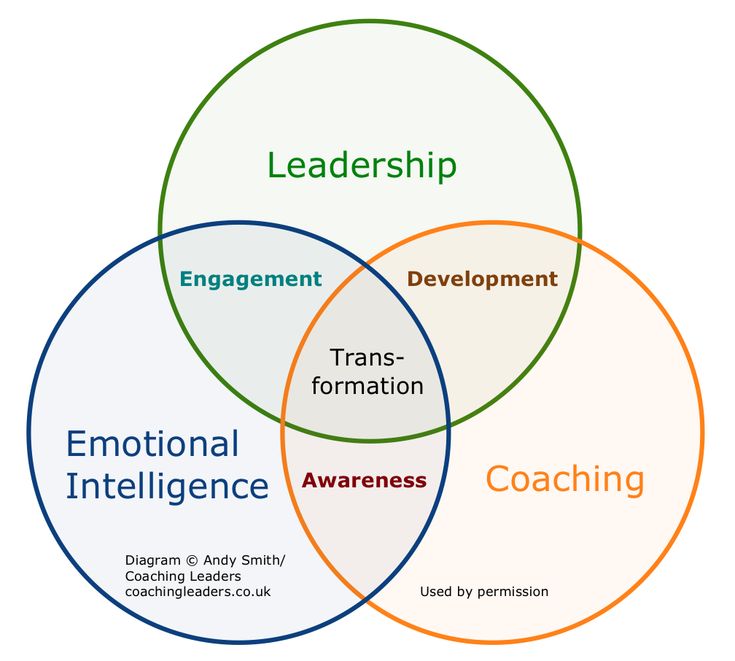
Achieving Goals
This skill involves a desire to meet a certain standard of quality and also to take into account the feedback we receive about our work.
Achievement-oriented people are constantly looking for ways to improve themselves and improve what they do. And we are talking not only about their high motivation, but also about restraint in judgment, self-discipline and a positive attitude. Such people are aware of the need for personal growth and therefore do not show arrogance and authority in relation to others.
On the other hand, they are self-confident and optimistic enough that they believe in the result of their work. That's why they can motivate themselves and the team.
What to do
Try to answer the questions:
- Do you let your weaknesses and failures get the better of you? Do you have enough personal resources to deal with them?
- Do you continue to work on personal development?
Adaptability
Naive optimism can compromise your stamina.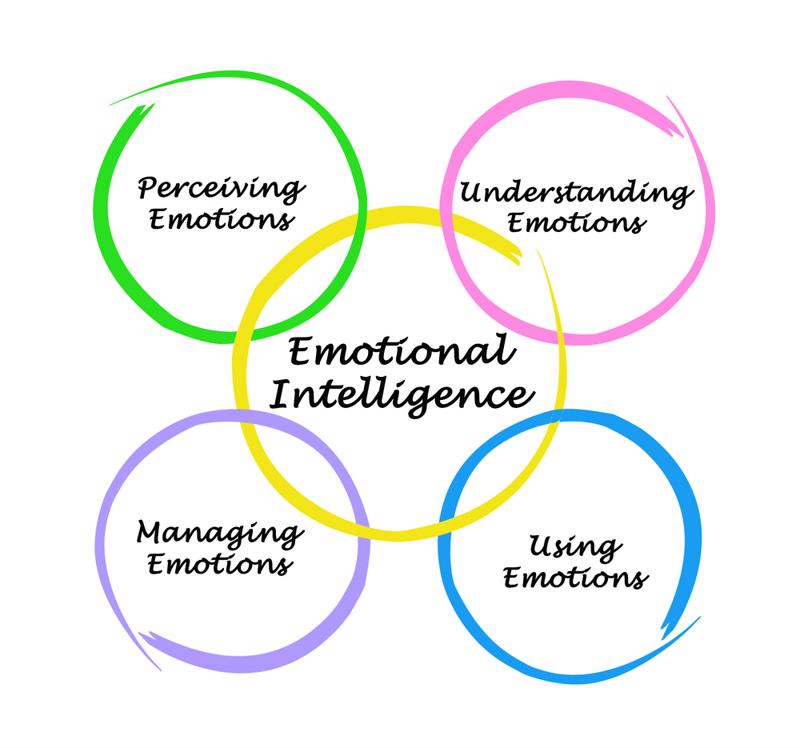 If you strive for success and are achievement-oriented, but ignore the need for hard work and avoid an objective assessment of your capabilities, then you will end up disappointed and turn into a pessimist.
If you strive for success and are achievement-oriented, but ignore the need for hard work and avoid an objective assessment of your capabilities, then you will end up disappointed and turn into a pessimist.
If you do not accept compromises and impose your will on others, relying on the fact that everyone around will listen only to your desires, then you will be greatly deceived in your expectations.
Adaptability is often associated with a willingness to make compromises: you have to sacrifice something to get something. Therefore, you need to be able to change and adapt to situations.
What to do
By recognizing the very need for change, you display a high degree of self-awareness.
Adaptability means being prone to change because it happens independently of our desires. We must monitor changes and accept them if necessary.
Of course, in order to adapt, we must look closely at our environment and try to perceive changes in the behavior, feelings, emotions of other people.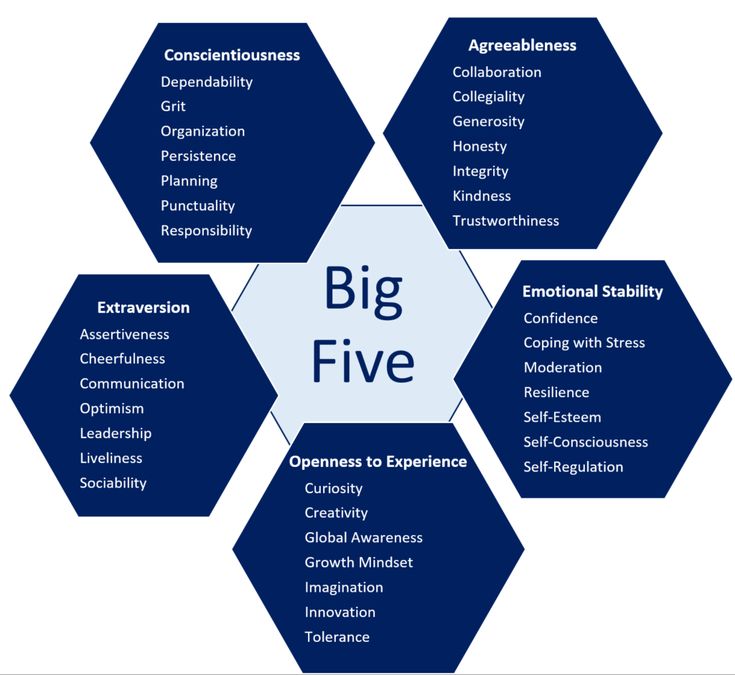
Influence
This skill can be compared to a well-oiled machine: you know that if you "press a button" something is bound to happen. The human psyche in many cases resembles such a mechanism, but it is simply difficult for us to realize it.
People with highly developed emotional intelligence know how this mechanism works and what to “press” to produce the desired effect. That is, they know how to behave and how to communicate with others - this is their social competence.
And this approach would be somewhat dangerous if they did not show empathy. Because empathy is the only thing that keeps them from being manipulated.
Do you now understand why all 12 components of emotional intelligence listed in this article are important in combination? They all balance each other.
What to do
If you want to be a strong leader, you need to learn to identify a dangerous emotion and neutralize it before it becomes a problem.
Ask yourself:
- How do people feel in your presence?
- How do they treat you?
- How do people react to your appearance? Are you greeted with respect, with fear, stiffness, or with a smile on your face?
- Are people happy to see you or not?
- Do they often turn to you for advice or opinion about something?
- When was the last time someone asked for your help?
Collaboration
People with highly developed emotional intelligence often have leadership qualities.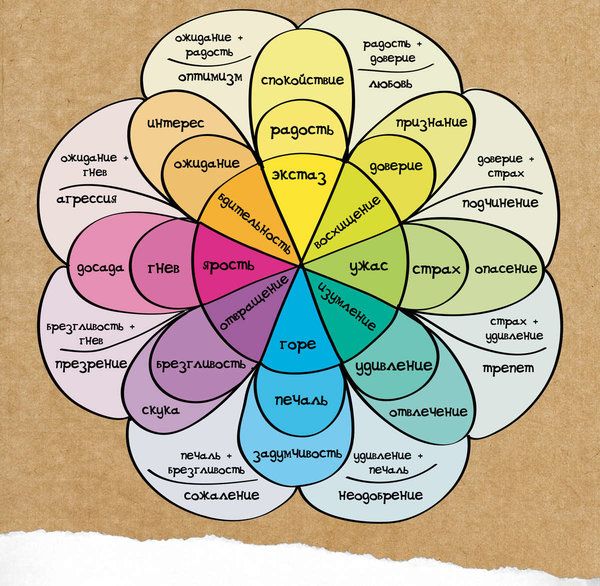 But the essence of leadership is not to lead others. There is an important difference between a manager and a leader.
But the essence of leadership is not to lead others. There is an important difference between a manager and a leader.
The leader faces challenging tasks to which he inspires the team. He knows that two heads think better than one, and therefore he listens to others, respects the opinion of his colleagues and accepts work proposals from them.
The leader also uses the skills of empathy and influence to minimize the problems that can arise due to differences in the nature of employees.
What to do
You need to honestly answer the question:
- Are you a team player or a lone wolf?
If the latter, then you need to reconsider your attitude towards colleagues. A strong team is always more powerful than one strong person.
Conflict management
A strong team, despite all its advantages, is always unstable. After all, the more people it includes, the more difficult it is to manage.
Each of us has our own individual characteristics, which have to be taken into account by the surrounding colleagues. We all have to compromise in order to work well as a team.
We all have to compromise in order to work well as a team.
Leaders with well-developed emotional intelligence can be called ideal conflict managers. In fact, they are diplomats. This competence is achieved through their emotional sensitivity and ability to recognize, identify and understand their emotions and those of their teammates.
In other words, they know how to diagnose and "treat" the problem.
What to do
It is important to learn to look at the situation from both sides and find a compromise for both sides.
Coach and mentor
Emotional intelligence implies a desire to improve. Since people with EQ pay a lot of attention to emotions, they are ideal candidates for the role of coach and mentor.
They are familiar with the difficulties of acquiring new knowledge and skills, and they understand how to motivate people and neutralize their emotional barriers (such as fear, for example) when faced with something new.
They also know the importance of leading, not just giving orders.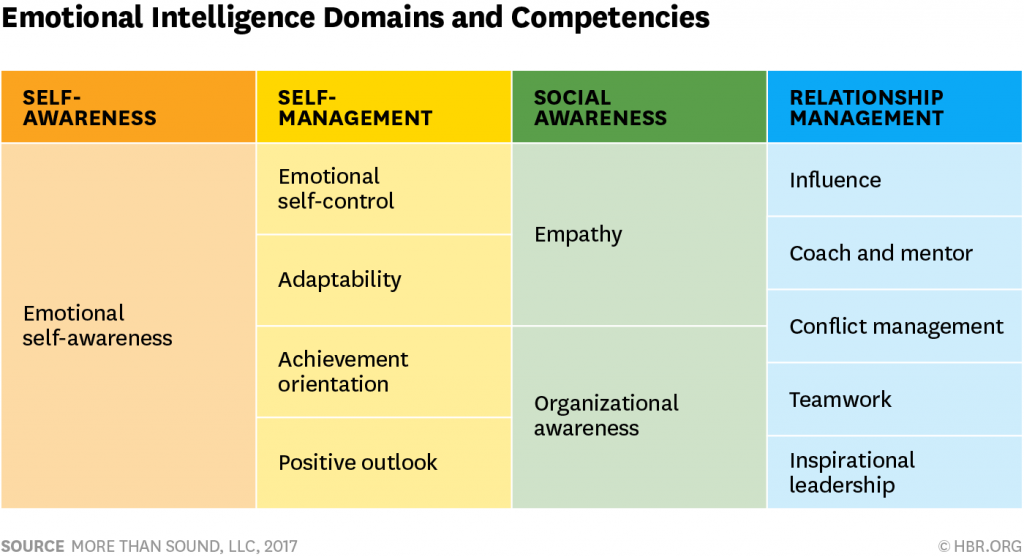 They realize the real significance of the team and correctly understand their role in it, which is to contribute to its growth.
They realize the real significance of the team and correctly understand their role in it, which is to contribute to its growth.
What to do
Try to remember what difficulties you personally encountered in the learning process. Do you know how to overcome these difficulties and speed up the learning process? If yes, then you have the potential of a coach.
Understanding organizational relationships
People with EQ are often well organized both internally and externally. With the ability to read the goals and motives of their colleagues, they know how to harmonize them.
They are well versed in the corporate environment because they understand how emotions affect the overall performance of the company. These people pay attention to subtle behavioral details and show a professional approach to changes that affect teams and individuals.
What to do
Look carefully at the following questions. If you give at least three negative answers to them, then you definitely have problems understanding the relationships in the organization.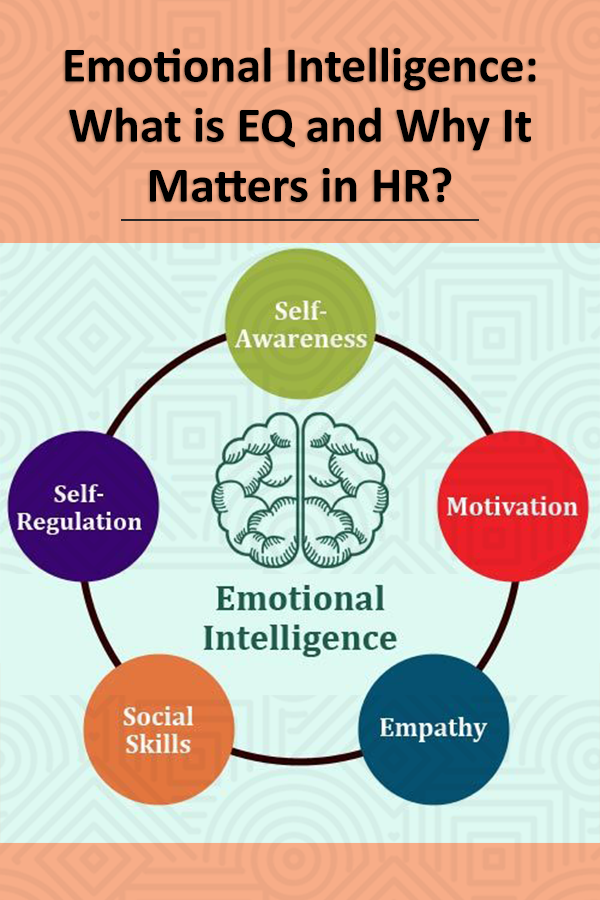
- How well do you understand the attitudes, motivations and goals of your colleagues?
- Can you describe the emotional climate in the team?
- Can you identify organizational problems in your company and fix them?
- How well do you understand the relationships and hierarchies that have developed in your company?
Inspirational Guide
It's one thing for people to trust you as a more competent person. Another is when you inspire them with an idea, and they are not afraid to take risks in order to achieve their goals. This is the secret of loyalty.
But for these conditions to arise, you need to know each of the employees individually. It's about some kind of leverage that you can use to motivate people to meet your and your own goals.
The key to such relationships is trust. It is important that people are not only interested in the company's strategy, but also take responsibility and important tasks.
When people believe in the possibility of their personal growth, they have a sense of purpose.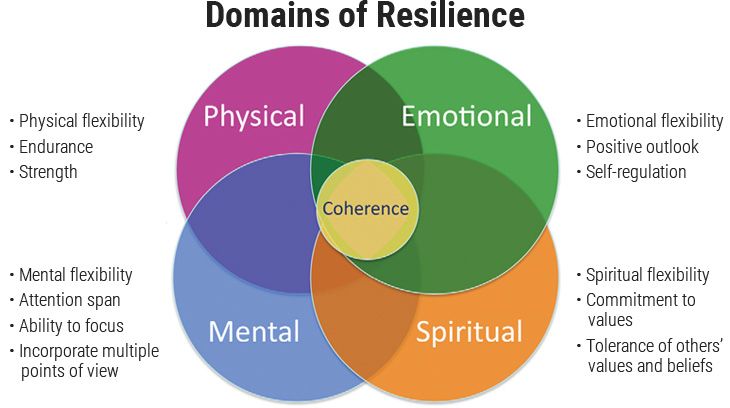
What to do
As a leader, you take full responsibility for the team's failures, even if employees don't abdicate blame. Are you ready for such a relationship?
By encouraging employee creativity and initiative, you not only develop trustworthy colleagues, but also future leaders.
You create a corporate tradition in the company, within which self-realization, self-respect and loyalty become key concepts.
All the most interesting things about business are on our channel at Telegram . Join now!
What is emotional intelligence and how it defines our lives
What is emotional intelligence
In the mid-1990s, the Western world exploded with the psychological bestseller by journalist Daniel Goleman, Emotional Intelligence: Why It Matters More Than IQ. Through facts about the human brain, the history of emotions and anthropology, Goleman tried to give his version of a successful person, using the research of American scientists.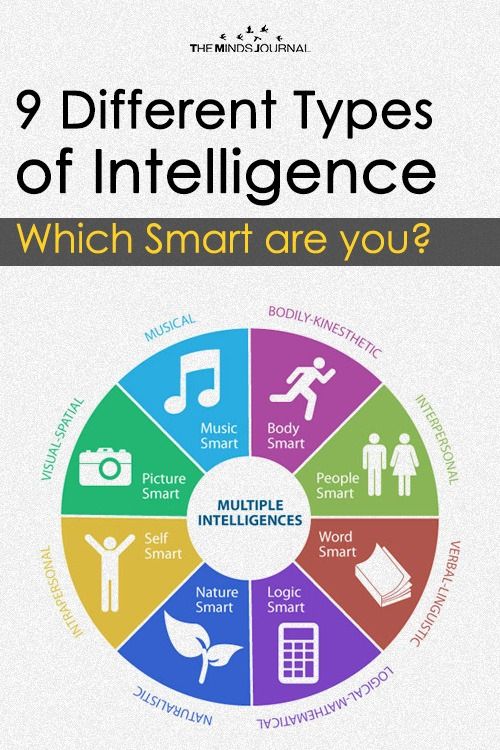 At that moment, they were actively looking for the ingredient of success, analyzing the achievements of different people in childhood and adulthood, their cognitive and social skills. Of course, the origin, heredity and the forces invested in education affect the viability of a person in adulthood, but success in life - especially for people without innate privileges - is affected by a unique combination of intellectual abilities and emotional sensitivity, when a person does not use his own feelings and desires destructively, but to achieve long-term goals. Whatever the university degree, parental family and the first years of a happy life, it is the ability of a person to manage his feelings and notice the feelings of others that will affect his ability to establish long-term relationships in his personal life and business, gain influence, draw attention to himself, lead a team, make friends and start a family.
At that moment, they were actively looking for the ingredient of success, analyzing the achievements of different people in childhood and adulthood, their cognitive and social skills. Of course, the origin, heredity and the forces invested in education affect the viability of a person in adulthood, but success in life - especially for people without innate privileges - is affected by a unique combination of intellectual abilities and emotional sensitivity, when a person does not use his own feelings and desires destructively, but to achieve long-term goals. Whatever the university degree, parental family and the first years of a happy life, it is the ability of a person to manage his feelings and notice the feelings of others that will affect his ability to establish long-term relationships in his personal life and business, gain influence, draw attention to himself, lead a team, make friends and start a family.
Emotional intelligence in a broad sense is the recognition of oneself and others of both positive and negative feelings, the ability to separate personal feelings from bare facts, as well as the ability to feel mood, temperament, intonation and intentions in communication with other people, regardless of whether whether they are old acquaintances or you see them for the first time in your life.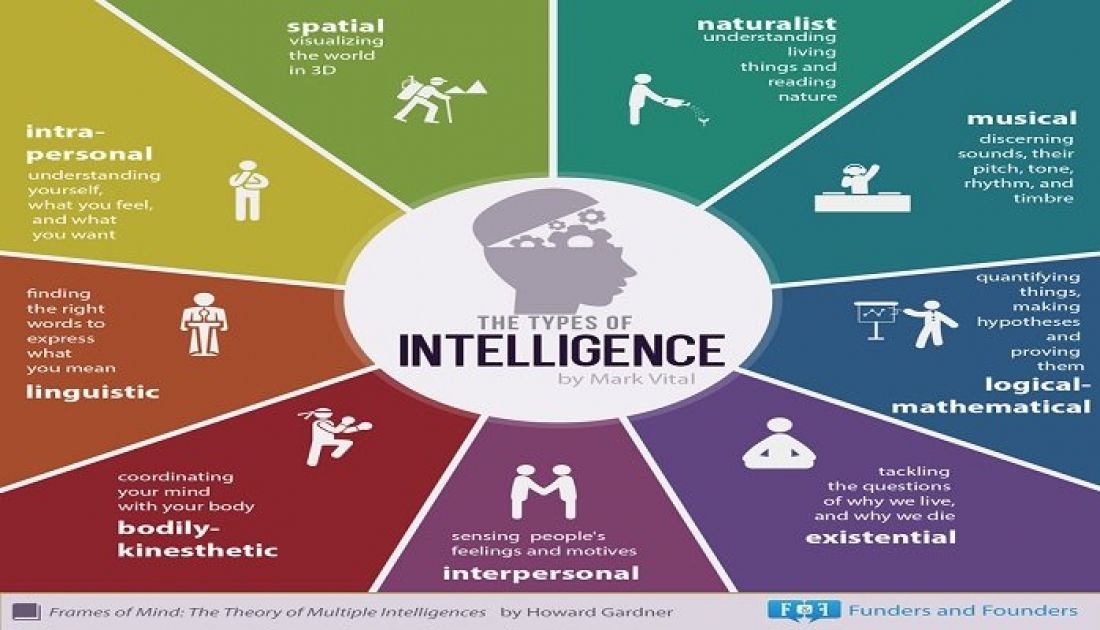 An important part of emotional intelligence is the ability to recognize and honestly describe one’s own emotions, the ability not to panic and reject “bad emotions” (anger, jealousy, irritation, envy, anger) and the widespread use of emotionally colored language with self-messages. People who are able to articulate their feelings (“I’m sorry that our vacation is so casual” instead of “Why don’t you come up with something again?” Is the first tangible sign), realize their source and calmly discuss further actions without getting personal, there are not Often. And the time spent with them, for the majority, turns out to be very high-quality communication.
An important part of emotional intelligence is the ability to recognize and honestly describe one’s own emotions, the ability not to panic and reject “bad emotions” (anger, jealousy, irritation, envy, anger) and the widespread use of emotionally colored language with self-messages. People who are able to articulate their feelings (“I’m sorry that our vacation is so casual” instead of “Why don’t you come up with something again?” Is the first tangible sign), realize their source and calmly discuss further actions without getting personal, there are not Often. And the time spent with them, for the majority, turns out to be very high-quality communication.
Psychologists generally divide emotional intelligence into four categories of skills. The first is the ability to communicate clearly and distinctly with others, explain expectations, actively listen, influence and inspire, work in a team or lead it and resolve conflicts. The second is general empathy and a comfortable sense of self in a large group of people: whether you're an extrovert or an introvert, you feel the emotional cues of others and rarely encounter misunderstandings.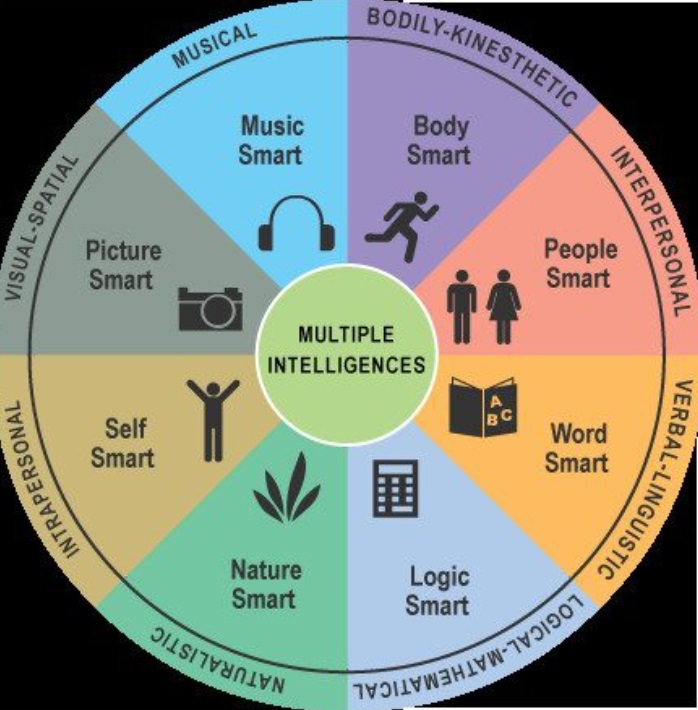 Third feature - Knowing your strengths and weaknesses and calmly coexisting with them, as well as a good knowledge of personal emotions and their influence on your life. And the last is the ability to manage emotions, limit their destructive influence on oneself, the ability to fulfill obligations, maintain long-term relationships and change in accordance with the environment.
Third feature - Knowing your strengths and weaknesses and calmly coexisting with them, as well as a good knowledge of personal emotions and their influence on your life. And the last is the ability to manage emotions, limit their destructive influence on oneself, the ability to fulfill obligations, maintain long-term relationships and change in accordance with the environment.
By itself, emotional intelligence is able to keep a person afloat, but it brings the best results in a career in combination with deep knowledge and strong motivation. Indeed, a high IQ helps you get into university or get a long-awaited job, but it is a developed emotional intelligence that affects exposure to stress, helps you start relationships in a new place or adapt to a turbulent work situation. Self-regulation, the ability to hear and put oneself in the place of another, the ability to manage mood complements practical skills and abilities in all areas where communication is required.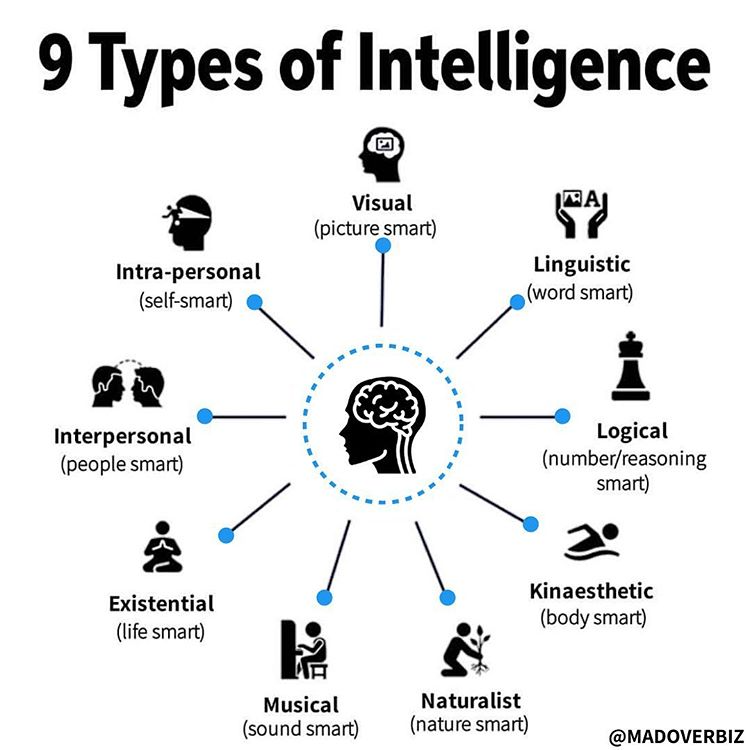 Obviously, in an age when most unpleasant tasks have already been assigned or will soon be transferred to machines, such areas are the vast majority.
Obviously, in an age when most unpleasant tasks have already been assigned or will soon be transferred to machines, such areas are the vast majority.
© JakeOlimb; erhui1979 / istockphoto.com
What Emotional Intelligence Influences and Why You Can't Do Without It
How often have you come across an incredibly talented and at the same time optional person who does not keep agreements? Have you ever been in his place? Were you interrupted with inappropriate remarks, or did your intervention only exacerbate the conflict? Has it ever happened that because of unvoiced expectations, your relationship only got worse and no one could determine what was the reason? All of these situations reflect problems with emotional intelligence: when a misunderstanding of intent and mood, emotional state and motivation makes simple communication tense, negative, or even rude. What is emotional intelligence primarily affected by?
- Self-awareness -
Feeling euphoria or depression, causeless anxiety or a very specific concern, a person with a high EQ understands what is happening to him and what it is called.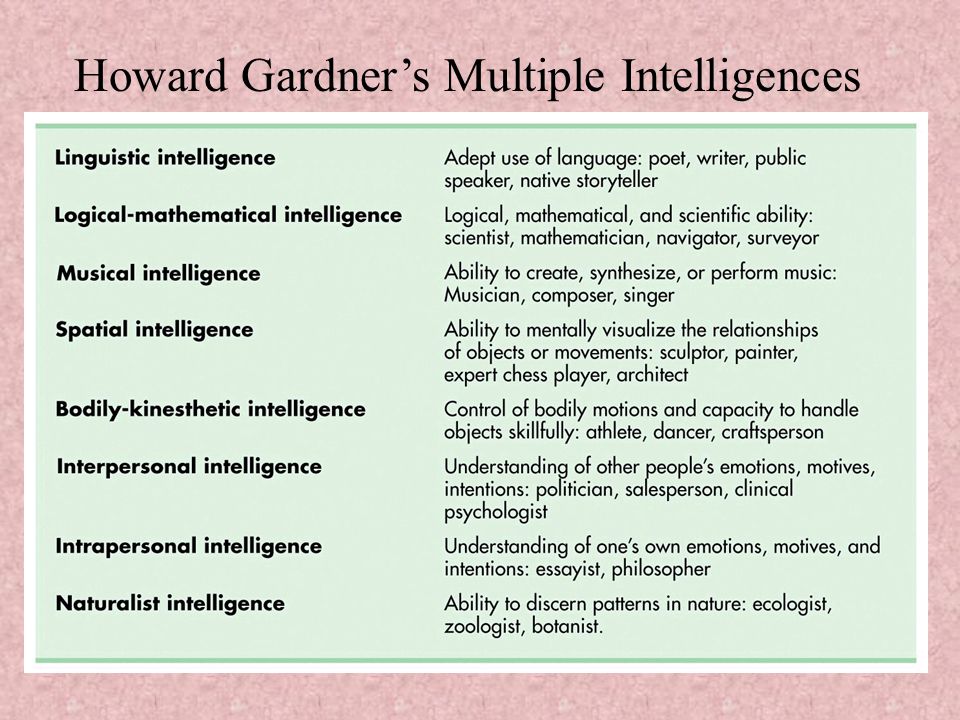 He is able to distinguish anxiety from anger or panic, and spontaneous tender joy from intense emotional intimacy. Being aware of his feelings, he is able to move away from them and not delve into destructive and incorporeal thoughts. For example, he will not take a slight infatuation for great love, and a curious prospect for the main goal of life. Based on emotions, he will make long-term plans, where mood swings or new events in life in general will not greatly change the vector of his development. This does not mean at all a dull life, without impressions, in which one cannot be subjected to impulse. Rather, it is a deep knowledge of how to respond to specific emotions. For example, do not continue a fruitless argument when all parties to the conflict are on edge. Do not take on too many responsibilities in a state of euphoria. Do not be afraid to admit to yourself in unsightly feelings and take responsibility for them. Don't do good to others without their request. These "nots" are taken from personal negative experiences and are often automatically adjusted after a few misses - it just takes time to catch the connection between our feelings and subsequent actions.
He is able to distinguish anxiety from anger or panic, and spontaneous tender joy from intense emotional intimacy. Being aware of his feelings, he is able to move away from them and not delve into destructive and incorporeal thoughts. For example, he will not take a slight infatuation for great love, and a curious prospect for the main goal of life. Based on emotions, he will make long-term plans, where mood swings or new events in life in general will not greatly change the vector of his development. This does not mean at all a dull life, without impressions, in which one cannot be subjected to impulse. Rather, it is a deep knowledge of how to respond to specific emotions. For example, do not continue a fruitless argument when all parties to the conflict are on edge. Do not take on too many responsibilities in a state of euphoria. Do not be afraid to admit to yourself in unsightly feelings and take responsibility for them. Don't do good to others without their request. These "nots" are taken from personal negative experiences and are often automatically adjusted after a few misses - it just takes time to catch the connection between our feelings and subsequent actions.
— Self-regulation —
Understanding your feelings, it is easy to manage yourself — from conscious nutrition to work schedule and work time planning. A high EQ means that we take responsibility for our lives and the final result of all relationships - work and personal - and do not look for someone to blame. Instead of putting the blame on colleagues who let us down, or the other half who did not understand us correctly, people with high EQ tend to ask themselves questions at what point in the misunderstanding worsened, what exactly they could have done better - and use this knowledge in the next similar situations. Self-control contributes to the fact that we do not allow negative emotions - anger, anxiety, fatigue - to affect others and monitor our own reputation: we keep our word, promise and agreements on an ongoing basis outside of force majeure. Results are judged by the efforts and actions of one's own, and not through the analysis of the mistakes of others.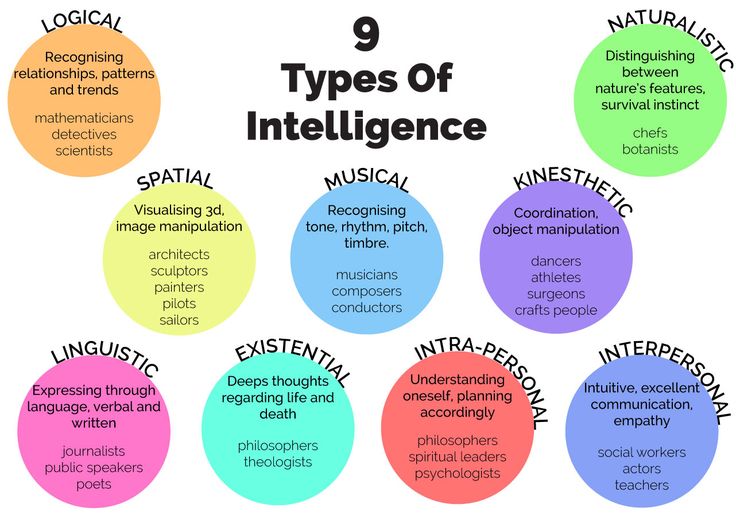 And new conditions and life situations do not plunge into an alarming state: a person with a high EQ will look in difficulties for the possibility of solving them and personal growth or moving to another job and to other relationships. Of course, this does not mean that you need to turn into a robot, in which all impulses and reactions are ordered. Rather, emotional intelligence means a sound assessment of one's capabilities and merits, recognizing people's right to behave as they want, and the ability to resolve conflict situations in a clash of interests without becoming their hostages for many months.
And new conditions and life situations do not plunge into an alarming state: a person with a high EQ will look in difficulties for the possibility of solving them and personal growth or moving to another job and to other relationships. Of course, this does not mean that you need to turn into a robot, in which all impulses and reactions are ordered. Rather, emotional intelligence means a sound assessment of one's capabilities and merits, recognizing people's right to behave as they want, and the ability to resolve conflict situations in a clash of interests without becoming their hostages for many months.
- Motivation -
Emotional intelligence is closely related to motivation and proactive behavior - the ability to adequately respond to change, unite (rather than divide) people, represent other people's interests, delegate power and inspire people to believe in the best. A person with a high EQ is easy to train and relates to temporary difficulties without a decadent attitude, guided by the principle “if we don’t try, we won’t know. ” He analyzes his own and other people's mistakes well, is not presumptuous, and therefore knows how to influence the mood of the group without intimidating or making light promises.
” He analyzes his own and other people's mistakes well, is not presumptuous, and therefore knows how to influence the mood of the group without intimidating or making light promises.
First, emotional intelligence influences the desire to justify one's own and other people's expectations and to treat these guarantees more responsibly. Secondly, the need to discuss mutual expectations at work or in the family provides an opportunity to express concerns about why the “gray areas” in a large task become smaller over time. Thirdly, emotional intelligence is almost always associated with the rational allocation of resources and initiative: instead of procrastinating, a proactive person will choose to teach or help another, arrange a common space, additional skills or free time. You have probably noticed that in any team there is a person who needs a little more than others, and he willingly shares this - he has ideas on how to spend the evening, he grows flowers in the office or brings treats, helps others without complaint and takes on education of trainees.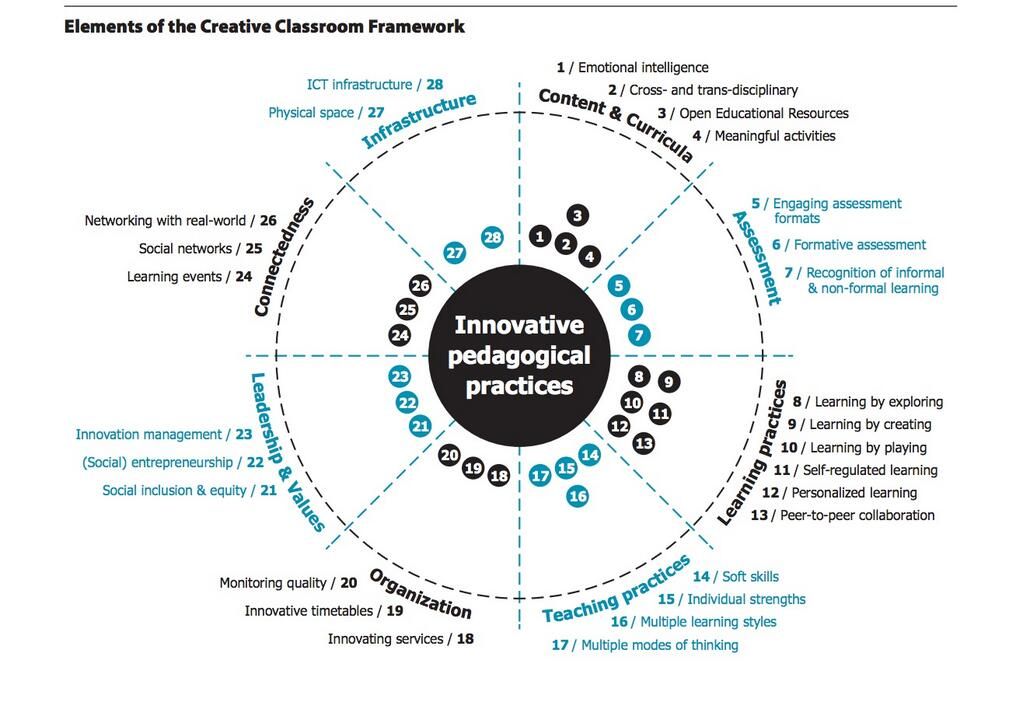 All this is one way or another an example of motivation in the workplace. In personal life, everything works in much the same way. We know people who always call first, choose a new place for a group dinner, book a group trip, invite them on a date, never forget a birthday - all these are also signs of emotional intelligence.
All this is one way or another an example of motivation in the workplace. In personal life, everything works in much the same way. We know people who always call first, choose a new place for a group dinner, book a group trip, invite them on a date, never forget a birthday - all these are also signs of emotional intelligence.
- Empathy -
In a broad sense, emotional intelligence affects the ability to understand what others feel and think. This can include a lot of information of various kinds: both knowledge of social psychology about group behavior or relationships in a couple, as well as specific skills to calm and get a panicked person out of a stupor, knowledge of the correct wording and ways to divert attention. In general, empathy is attunement to others in any of their states, accepting their mood, understanding language and reading non-verbal signs. The first thing that emotional intelligence affects is the ability to recognize the emotions of others and draw conclusions from this.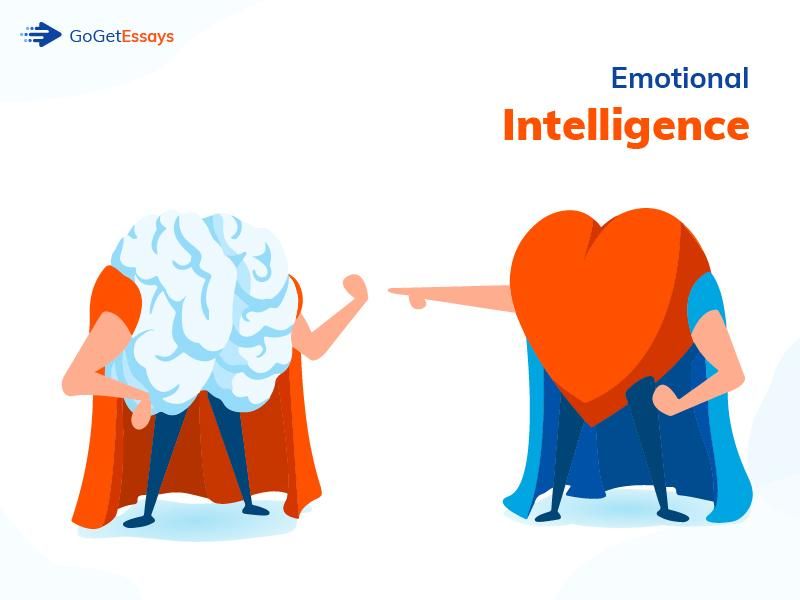 The rule of not yelling at a crying baby or having long arguments with aggressive people is a basic rule of empathy that helps reduce wasted effort. A manager who listens to subordinates and gives them the tools to grow and develop manifests himself as an empathic leader because he feels the needs of others and helps them reach their potential. A sense of justice is also associated with empathy - the absence of prejudices and preferences, the ability to use the skills of all participants in the process for the common good. And, of course, a person with a developed emotional intelligence usually understands well what they don’t talk about: he respects weaknesses, remembers injuries, does not push conflicting parties together, sees the hierarchy and knows how to reckon with it.
The rule of not yelling at a crying baby or having long arguments with aggressive people is a basic rule of empathy that helps reduce wasted effort. A manager who listens to subordinates and gives them the tools to grow and develop manifests himself as an empathic leader because he feels the needs of others and helps them reach their potential. A sense of justice is also associated with empathy - the absence of prejudices and preferences, the ability to use the skills of all participants in the process for the common good. And, of course, a person with a developed emotional intelligence usually understands well what they don’t talk about: he respects weaknesses, remembers injuries, does not push conflicting parties together, sees the hierarchy and knows how to reckon with it.
- Social skills -
All of the above areas of influence of emotional intelligence lead to the main thing: the combination of these qualities helps us to better understand people, not to have unjustified expectations towards them, not to demand more from ourselves and others than in our strength, not to become hostages of emotions, not to succumb to group influence.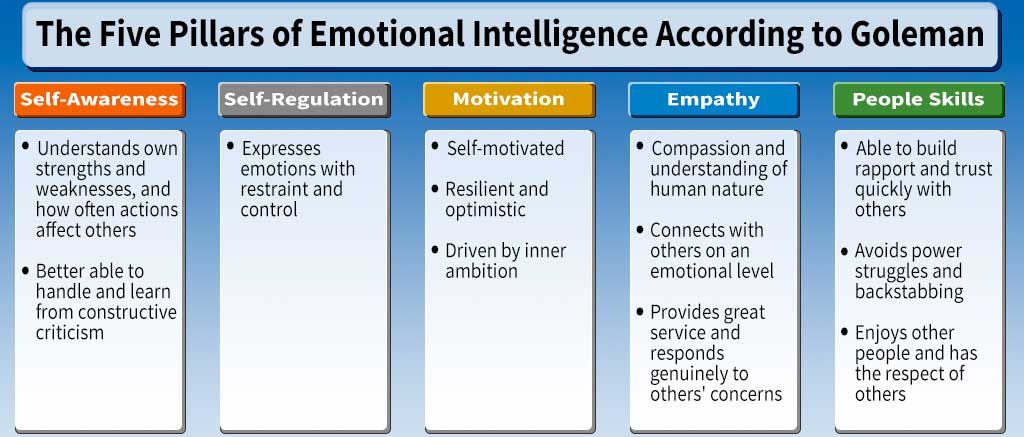 People with high EQ are more likely to work on rhetorical devices or are already good at persuasion techniques. They know how to verbally prioritize, don't expect their emotions to be guessed, and rarely slip into passive-aggressive behavior.
People with high EQ are more likely to work on rhetorical devices or are already good at persuasion techniques. They know how to verbally prioritize, don't expect their emotions to be guessed, and rarely slip into passive-aggressive behavior.
Emotional intelligence helps to bring people together and initiate changes in a family or group without causing negative feelings in anyone, to see the pluses of everyone individually when achieving common goals is required, to share experiences and educate each other. Teams with such people are almost always a breeding ground where it is easy to grow and acquire many related skills, and at the same time consolidate self-confidence. And, of course, emotional intelligence is necessary if it is necessary to approach the conflict consciously, to resolve it without mutual accusation and unfavorable compromise. Instead of anxiety and fear, give up positions. A person with a high EQ will choose a sincere conversation between the conflicting parties, will not avoid the role of an intermediary, but will help to express mutual claims and develop a strategy for further actions.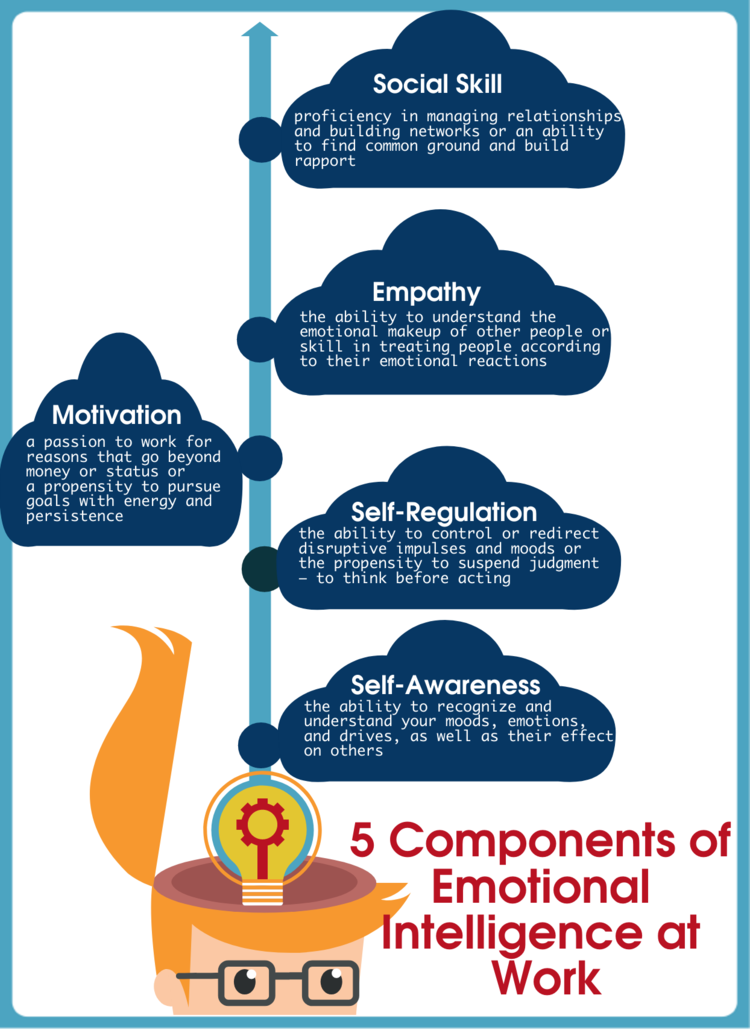
How to Improve Emotional Intelligence: 5 Actionable Steps
Unlike many inborn talents, like math skills or an ear for music, emotional intelligence as a social skill can be improved throughout one's life. As a work team, as a couple, in relationships with parents, friends and children, we can constantly work on empathy and communication skills, which will definitely affect the quality of our relationships, mood and lifestyle.
© Vijay Patel; erhui1979 / istockphoto.com
- Step one -
Putting ourselves in the other person's shoes
It's a good start to study the person we want to put ourselves in. A crying little baby is most often tired or hungry. An annoyed neighbor could not get enough sleep because of the construction under the window. A disgruntled colleague is going through a difficult breakup. Too much new work has fallen on my mother. The wife is tired, torn between home and work. The boss is hungover, scowling, and making harsh comments. My best friend has been depressed for over a year. A tipsy stranger on the street wants to chat. A subordinate in a panic failed the third project in a row. By analyzing with whom and in what state we are talking, we better understand how they feel right now and why they act the way they do. It is absolutely not necessary to leave people the opportunity to make mistakes without consequences - in some situations it is simply necessary to outline the boundaries of what is acceptable. But knowing what is happening in the lives of those with whom we encounter every day is absolutely necessary so that our mutual expectations and demands are fair. Put yourself in the place of a woman who has to drive half a city with a pram, or a man who hasn't been on vacation for more than two years, or a child who is never turned away. And it will be much easier for you to understand how they feel at the moment.
My best friend has been depressed for over a year. A tipsy stranger on the street wants to chat. A subordinate in a panic failed the third project in a row. By analyzing with whom and in what state we are talking, we better understand how they feel right now and why they act the way they do. It is absolutely not necessary to leave people the opportunity to make mistakes without consequences - in some situations it is simply necessary to outline the boundaries of what is acceptable. But knowing what is happening in the lives of those with whom we encounter every day is absolutely necessary so that our mutual expectations and demands are fair. Put yourself in the place of a woman who has to drive half a city with a pram, or a man who hasn't been on vacation for more than two years, or a child who is never turned away. And it will be much easier for you to understand how they feel at the moment.
- Step two -
Name emotions: own and others
Most people do not know how to name their emotions and consider it an extra skill.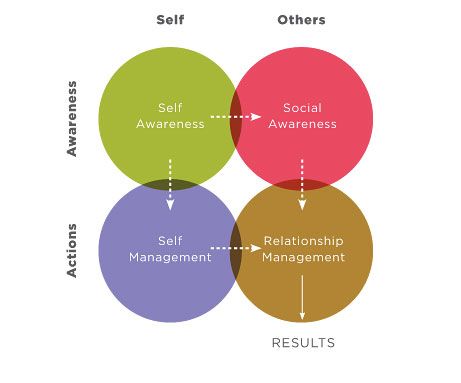 Meanwhile, anger is very different from resentment and disappointment, and it is necessary to analyze your own and other people's emotions in order to know your own weaknesses. One of the best ways is to replenish the emotional vocabulary with new descriptions of emotions: to separate anxiety from irritation, fatigue from apathy. This is best done in combination with mood diary : Keep a diary of changing moods daily and record emotions during and after events - meetings, conversations, cultural events and new acquaintances. So you, firstly, will see what events of the day and how they affect you (positively or negatively), and secondly, you will understand the tangle of conflicting feelings that different situations and people cause in you. When you understand what negative emotions dominate in life, it will be easier to find a way out for them: it is no coincidence that active sports and jogging are advised from anger, and sweets are not advised to seize anxiety. When you learn to name and define your emotions, it will be much easier to identify others - by verbal and non-verbal signals.
Meanwhile, anger is very different from resentment and disappointment, and it is necessary to analyze your own and other people's emotions in order to know your own weaknesses. One of the best ways is to replenish the emotional vocabulary with new descriptions of emotions: to separate anxiety from irritation, fatigue from apathy. This is best done in combination with mood diary : Keep a diary of changing moods daily and record emotions during and after events - meetings, conversations, cultural events and new acquaintances. So you, firstly, will see what events of the day and how they affect you (positively or negatively), and secondly, you will understand the tangle of conflicting feelings that different situations and people cause in you. When you understand what negative emotions dominate in life, it will be easier to find a way out for them: it is no coincidence that active sports and jogging are advised from anger, and sweets are not advised to seize anxiety. When you learn to name and define your emotions, it will be much easier to identify others - by verbal and non-verbal signals.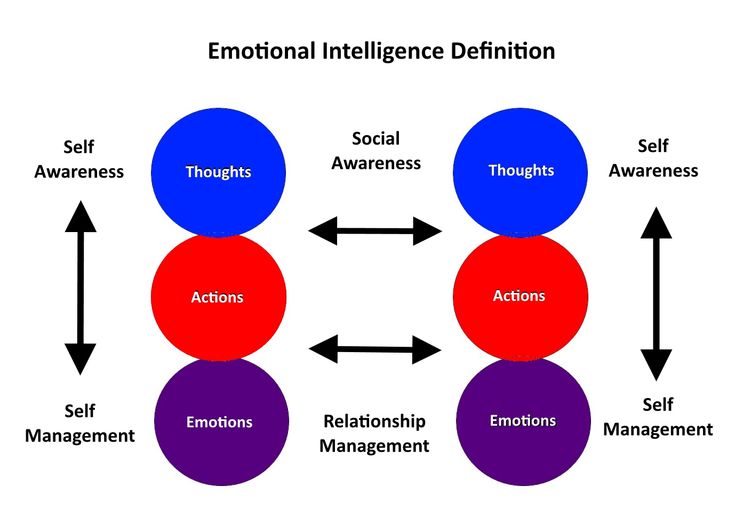 And forever separate emotions that are related to you from random ones: you don’t need to comprehend the behavior of an annoyed person in public transport, but the partner’s constant claims should be taken into account.
And forever separate emotions that are related to you from random ones: you don’t need to comprehend the behavior of an annoyed person in public transport, but the partner’s constant claims should be taken into account.
- Step Three -
Broaden your horizons
Often problems with emotional intelligence are due to the fact that we drowned in our information bubble. It has already been proven that knowledge of several foreign languages helps a person to better absorb information about the diversity of the world. It is necessary to broaden one's horizons - to read fiction books and memoirs, to watch feature films and documentaries, to be interested in science, to travel, to educate oneself - in order to understand how people differ in talents and aspirations and how problematic it is for life and career to measure everyone by one measure. Modests and careerists, swindlers and idealists will be found in world literature and cinema, and each of them will have their own exciting story.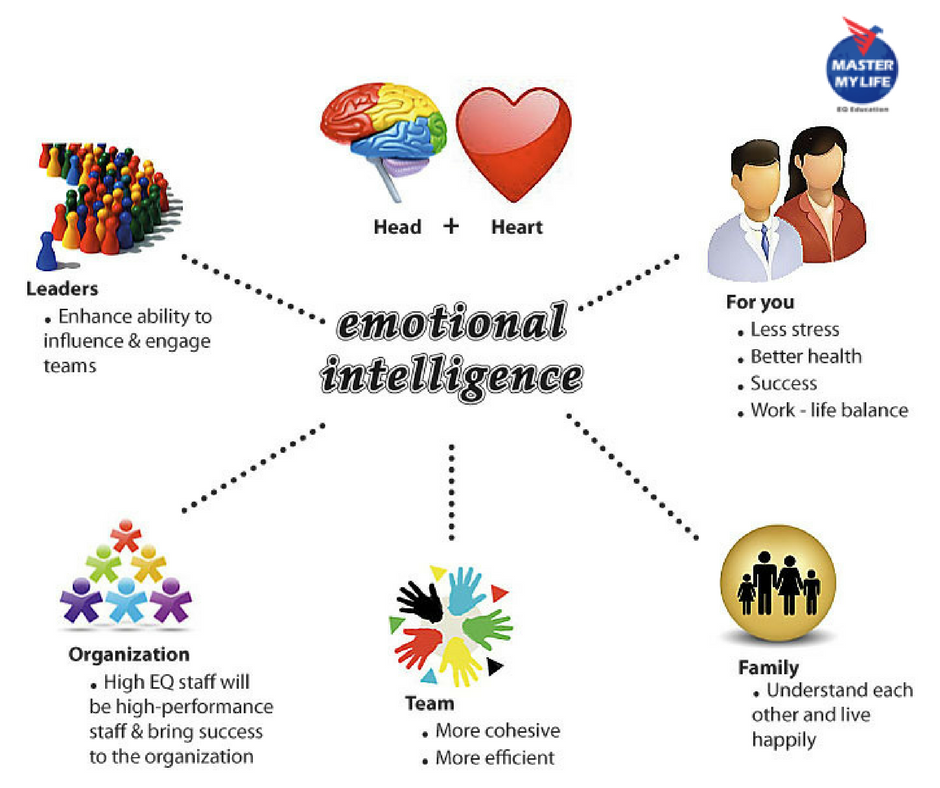 Understanding a complex and disordered world in which everyone can find what they need is an important step for resolving conflicts, building harmonious relationships and managerial growth. Books, films, exhibitions, trips and new skills are not just erudition, but also a way to better understand others.
Understanding a complex and disordered world in which everyone can find what they need is an important step for resolving conflicts, building harmonious relationships and managerial growth. Books, films, exhibitions, trips and new skills are not just erudition, but also a way to better understand others.
- Step Four -
Think Two Steps Ahead
Emotional intelligence is related to long-term planning: setting priorities and goals, strategically allocating resources and tactics for immediate action. In building relationships with others, it is always worth dividing people into those with whom we spend most of our time and those who have no influence on our lives. All the powers of emotional intelligence should be used to ensure that communication with the inner circle is filled and interesting. Spend your time on those from whom you learn a lot, who surpass you in personal and professional qualities, surround yourself with caring and harmonious people, and communication with them will bear fruit.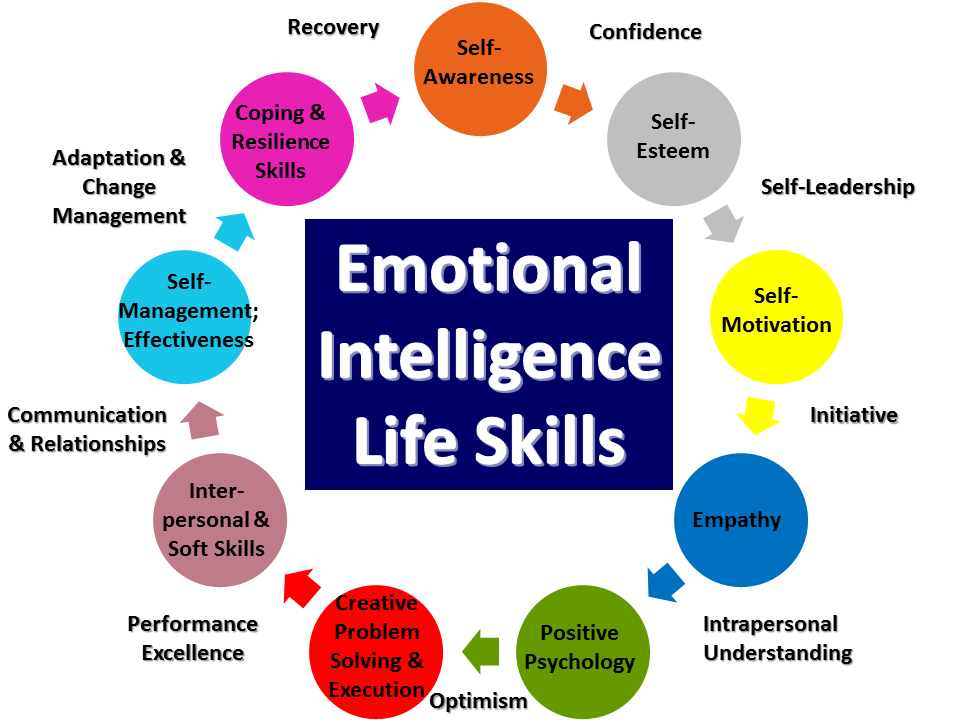 Think about how to get into such a team or assemble one if you are responsible for it. Think about what kind of life is important and comfortable for you and what actions will lead you to it. Tailor your budget to your goals and learn how to save. Save money for a smart purchase. Help others by discussing it and coming to an agreement. Look at conflict and obstacles as an intermediate stage, overcoming which new opportunities will open up for you. Carefully spell out all work and personal commitments in advance and don't make false promises or set unreasonable expectations. Emotional intelligence helps to measure mental strength and capture the mood of someone who can and wants to help you move forward in your plans. If the environment and intended goals do not match your current state, it is never too late to replay and get what you are striving for.
Think about how to get into such a team or assemble one if you are responsible for it. Think about what kind of life is important and comfortable for you and what actions will lead you to it. Tailor your budget to your goals and learn how to save. Save money for a smart purchase. Help others by discussing it and coming to an agreement. Look at conflict and obstacles as an intermediate stage, overcoming which new opportunities will open up for you. Carefully spell out all work and personal commitments in advance and don't make false promises or set unreasonable expectations. Emotional intelligence helps to measure mental strength and capture the mood of someone who can and wants to help you move forward in your plans. If the environment and intended goals do not match your current state, it is never too late to replay and get what you are striving for.
- Step Five -
Go through training or psychotherapy
Very often it is difficult to find resources and knowledge for deep changes in order to make a sharp qualitative leap in understanding oneself and others. In this case, psychological training or psychotherapy can be a very useful tool on the path to self-knowledge. Training is recommended for psychologically healthy people, without problems with appetite and sleep, in a stable positive state to achieve career and personal goals with a personal motivation coach. Trainings are shown to those who are tired of a work routine or an unfavorable personal situation and who have enough internal strength to do significant work on themselves.
In this case, psychological training or psychotherapy can be a very useful tool on the path to self-knowledge. Training is recommended for psychologically healthy people, without problems with appetite and sleep, in a stable positive state to achieve career and personal goals with a personal motivation coach. Trainings are shown to those who are tired of a work routine or an unfavorable personal situation and who have enough internal strength to do significant work on themselves.
Psychotherapy is a deeper and longer-term undertaking that requires a reassessment of oneself, one's achievements, one's environment and one's lifestyle. Often it is accompanied by the acquisition of new habits, parting with toxic environments, changing jobs and even places of residence, and no good therapist can tell you where the therapy will take you. Both training and therapy are aimed at expanding emotional intelligence, developing the ability to identify and control emotions, work with fears and negative attitudes, and overcome negative patterns through a fundamentally new set of actions.